
DAILY FORTY-NINER Vol. XCV, Issue 8 www.daily49er.com Monday, October 9, 2023 EST 1949 Embrace
SPECIAL OUTOBER ISSUE
Pride
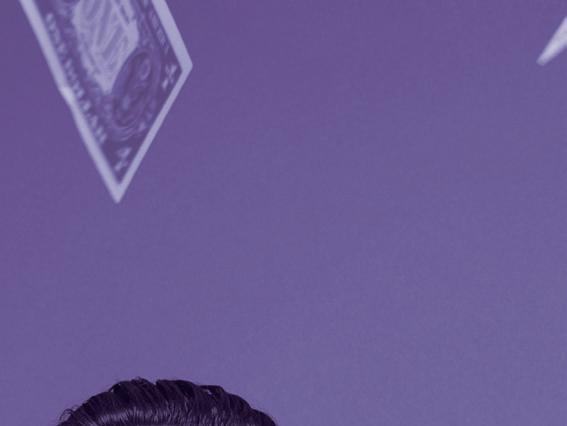



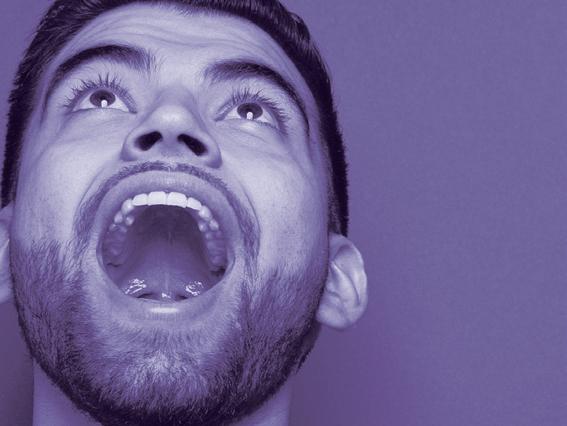
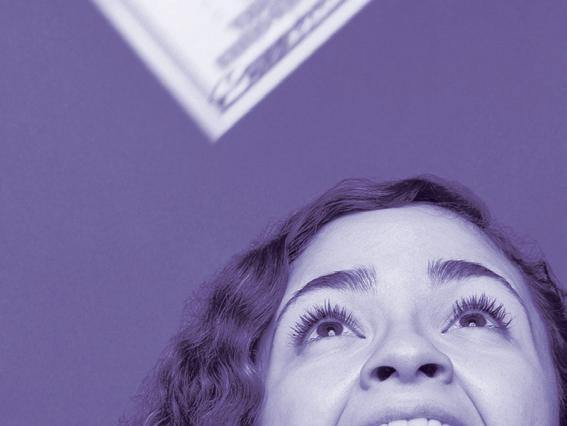



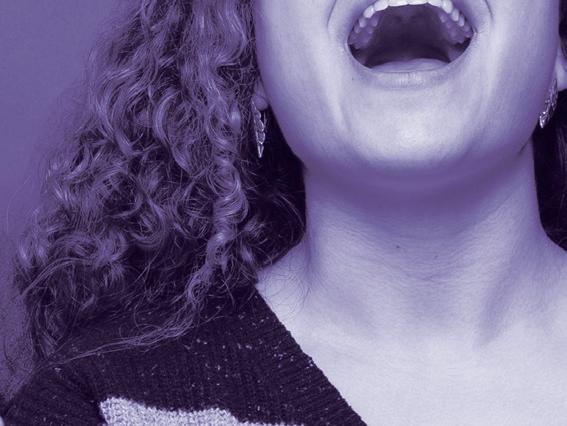


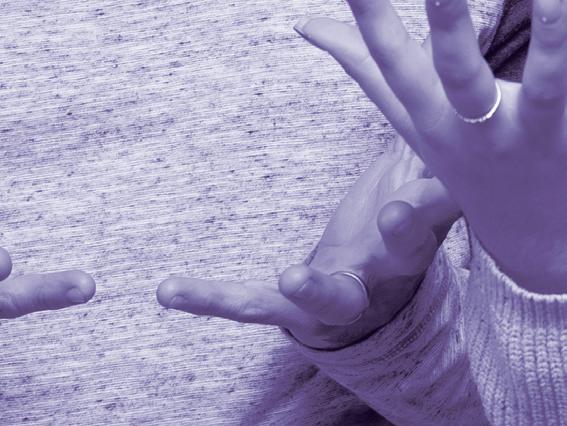
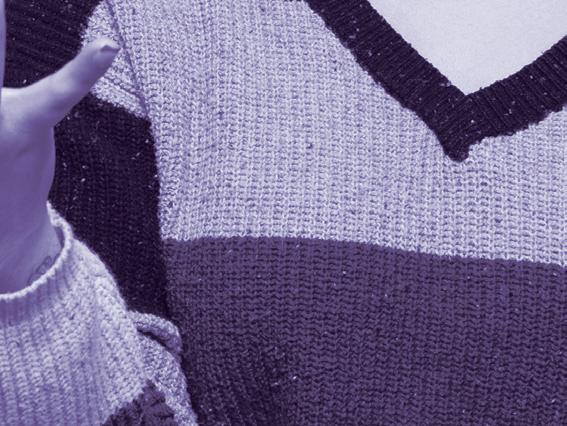
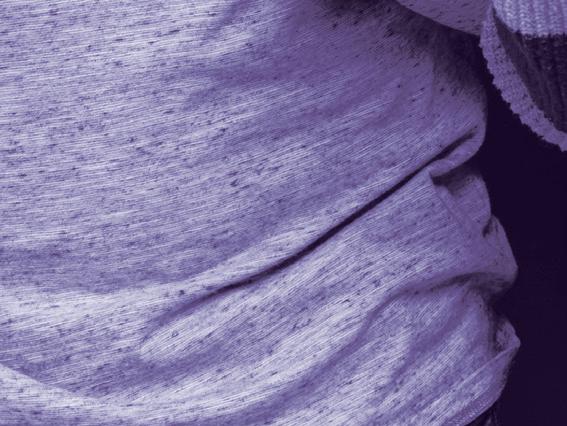
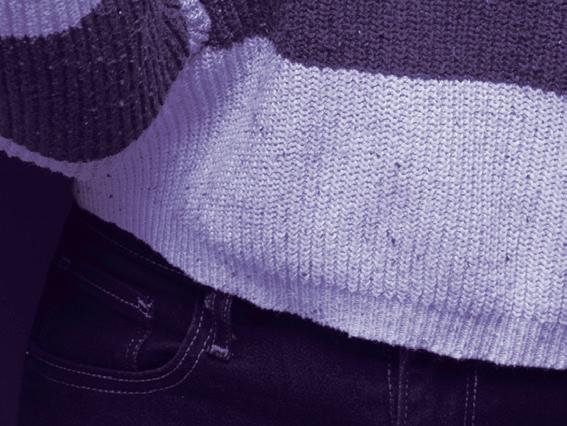


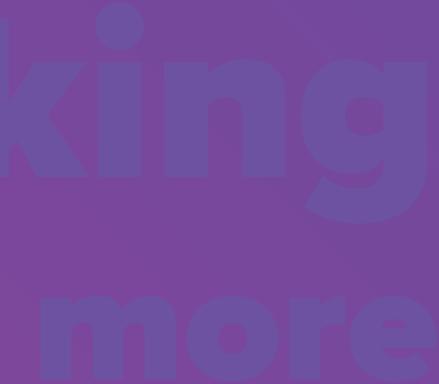














Monday, October 9, 2023 2 daily49er.com | @daily49er PAID ADVERTISEMENT
Daily Forty-Niner
1250 Bellflower Blvd., LA4-203 Long Beach, CA, 90804
Editorial Office Phone (562) 985-8000
El Nicklin Multimedia Managing Editor multimedia@daily49er.com
The “Long Beach Embrace” mural was unveiled at Bixby Park on Aug. 5, 2023. The artist of the mural, Myisha Arellano, did this work as a part of a movement that is trying to spread love and inclusion through visual art called LA vs. Hate’s “Summer of Solidarity” campaign.
Christal Gaines-Emory Editor in Chief eic@daily49er.com
Samuel Chacko Managing Editor
managing@daily49er.com
Kristina Agresta
Juan Calvillo News Editor news@daily49er.com
Natasha Castanedo Arts & Life Editor arts@daily49er.com
Georgie Smith Opinions Editor opinions@daily49er.com
Davis Ramage Sports Editor sports@daily49er.com
Mary Catipay Design Editor design@daily49er.com
Copy Editor
Photo Editor
Social Media Editor
Jazmin Arellano Gallardo
copy@daily49er.com
Naoki Gima
photo@daily49er.com
Maureen Linzaga
socials@daily49er.com
Alina Ti Video Editor
video@daily49er.com
Podcast Editor
Aidan Swanepoel
podcast@daily49er.com
Sam Farfan Director of Business Operations Community Engagement Editor business@gobeach.media community@daily49er.com Editors Assistants
News Assistants
Elizabeth Basile
Acsah Lemma
Anthony Orrico
Linsey Towles
Samantha Cortes
Arts & Life Assistants
Opinions Assistants
Sports Assistants
Renzo Pocasangre
Cheyenne Elizarraras
Maya-Claire Glenn
Matthew Coleman
Alyssa De La Cruz
Matthew Gomez
Luis Castilla Design Assistants
Nuelle Obaseki
Stacey Chen Copy Editor Assistants
Photo Assistants
Social Media Assistants
Video Assistant
Jaylyn Preslicka
Nick Broadhead
Mark Siquig
Marlon Villa
Maher Basharahil
Jahir Olvera
Steven Matthews
Julia Goldman Podcast Assistants
Here at CSULB, in lieu of Pride month celebrations in the month of June during summer vacation, we honor the LGBTQ+ community during October. “OUTober” celebrates the LGBTQ+ community and aims to educate others about the many achievements as well as the difficulties and adversity faced within the community.
As an LGBTQ+ individual, attending CSULB and spending time in the general Long Beach area has been so healing for me because of the constant support and representation. In this city, rainbow flags are flown and LGBTQ+ lovers walk hand-inhand without fear. The same can be said for the campus. As a queer person, I feel safe here.
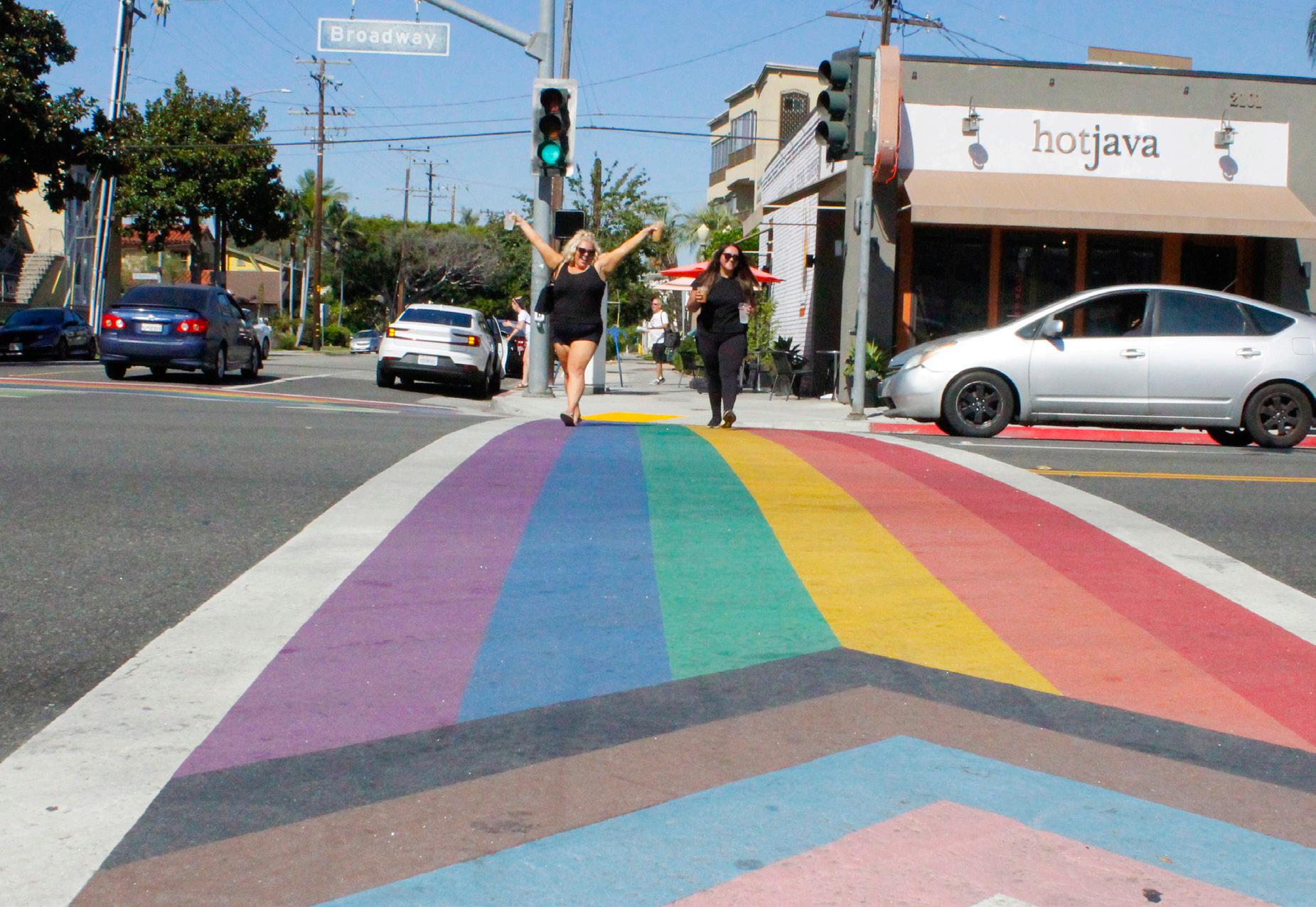
continue to improve in representation and support toward this community; there’s always more work to be done.
In this special OUTober issue of the Daily Forty-Niner, our goal is to continue educating students and staff at CSULB and beyond about LGBTQ+ rights. This issue consists of news pieces about on-campus LGBTQ+ resources, a breakdown of homophobic and transphobic legislation, features on LGBTQ+ artists, multiple personal essays and more, all aimed towards uplifting this community in our storytelling while keeping our audience informed.
I am of the belief that everyone should have the opportunity to love and be loved if they so choose. Love should be embraced, not oppressed. Love unapologetically, I know I will.
Izzy Ahmed Advertising Manager advertising@gobeach.media
Jennix Bien Creative Director
creative@gobeach.media
Leila Nuñez Web & Technology Manager
web@gobeach.media
Nicollette Combre PR & Promotions Manager
Distribution Manager
Business Advisers
beach.pr@gobeach.media
Sofia Ingegno
distribution@gobeach.media
Gary Metzker Design Adviser
Barbara Kinglsey-Wilson Content Adviser
Jennifer Newton Advertising & Business Adviser
Letters Policy: All letters and emails must bear the phone number of the writer and must be no more than 300 words. The Daily Forty-Niner reserves the right to edit letters for publication in regard to space.
Editorials: All opinions expressed in the columns, letters and cartoons in the issue are those of the writers or artists. The opinons of the Daily Forty-Niner are expressed only in unsigned editorials and do not necessarily reflect the opinions of the journalism department or the views of all staff members. All such editorials are written by the editorial board of the Daily Forty-Niner.
Unfortunately, this isn’t a universal experience and LGBTQ+ people face trials everyday. Injustice towards this community is all too familiar, we all feel it and we feel for other members of the community that suffer as a result. With nearly 500 anti-LGBTQ+ bills circulating this year in the United States, we feel it.
At CSULB, a variety of events are held during the month of October in order to highlight and uplift the LGBTQ+ community. I’m grateful to live in a city that welcomes and embraces my community, from Pride parades to informative workshops to LGBTQ+ representatives and visible Pride symbols, Long Beach has made great strides for the LGBTQ+ community.
It is my hope that Long Beach and CSULB both
At the Daily Forty-Niner, we will continue to uplift and highlight the LGBTQ+ community throughout the year. Our coverage will continue to be inclusive and uplift student voices and experiences, including those of other underrepresented communities.
Please enjoy our OUTober special edition! Students interested in pitching a story about LGBTQ+ representation can email me directly at eic@daily49er.com and we can further discuss these ideas. Your ideas are welcome.
For daily news content, visit our website, subscribe to our newsletter, or follow us on Instagram, Twitter and Facebook @daily49er.
CHRISTAL GAINES-EMORY Editor-in-Chief
Land Acknowledgment
Here at the 49er we acknowledge that the school we report on is located on the sacred site of Puvungna, “the gathering place”. We are on the land of the Tongva/Gabrieleño and the Acjachemen/Juaneño Nations who have lived and continue to live here.
We also acknowledge the Gabrieleño/Tongva (pronounced: GABRIEL-EN-YO/TONG – VAH) and Acjachamen/Juaneño (pronounced: AH-HACH-AH-MEN/JUAN-EN-YO) as the traditional custodians of the Los Angeles region along with the Chumash (pronounced: CHOO-MOSH) to the north and west, and the Tataviam (pronounced: TAH-TAH-VEE-YUM) and Cahuilla (pronounced: KAH-WEE-YAH) Nations to the east.
We respect and value the many ways the Tongva/Acjachemen cultural heritage and beliefs continue to have significance to the living people and remind us about the sacred and spiritual relationship that has always existed here at what we now call California State University Long Beach.
ON THE COVER NAOKI GIMA / Daily Forty-Niner
LETTER FROM THE EDITOR
3 Monday, October 9, 2023 daily49er.com | @daily49er
Lei Madrigal
LUIS CASTILLA / Daily Forty-Niner East Broadway serves as the heart of LGBTQ+ representation in Long Beach, complete with rainbow crosswalks on the pavement, gay bars and inclusive businesses lining the street.
2023 LGBTQ+ milestones around the globe
 By ACSAH LEMMA News Assistant
By ACSAH LEMMA News Assistant
January: Dutch lawmakers voted to expand Article 1 of the Kingdom of the Netherlands’ constitution which will explicitly ban discrimination based on sexual orientation as well as disability, according to LGBTQ Nation
March: In the U S , around 400 students in Idaho joined together and left their classrooms in a “We Say Gay” walkout in protest of the legislative bills passed against LGBTQ+ youth in the nation, reported the Des Moines Register The protests followed the passing of bills such as Senate Study Bill 1145 which would require staff to inform a student’s guardian if they are transgender
May:
Same-sex couples in Taiwan now have the legal right to adoption, according to the Washington Post Before this, same-sex couples could only jointly adopt children that were biologically related to them Taiwan also became the first Asian country to recognize same-sex marriage in 2019
July:
Although it is not illegal to be gay in Peru, following a high court ruling, same-sex unions can now be legally registered in Peru’s public records, reported Reuters Peru stands out as one of the last South American countries that has yet to legalize same-sex marriage, diverging from the path taken by countries like Argentina and Brazil
National Public Radio, NPR, reported that Argentina was the first Latin American country to legalize same-sex marriage nationwide in 2010 and Brazil followed three years later in 2013 according to Outright International
September:
Following countries such as Estonia and Nepal, Cuba approved to legalize same-sex marriage as part of a new family code, according to the Washington Post In addition to the legalization of samesex marriage, samesex couples in Cuba will also be allowed to adopt
February:
According to The Guardian, same-sex couples in South Korea are now entitled to the same spousal health coverage that heterosexual couples receive thanks to a ruling by a Seoul high court in South Korea Although same-sex marriage is still illegal in South Korea, this is the first legal recognition of LGBTQ+ couples in the country
April:
According to the Gay and Lesbian Alliance Against Defamation, GLAAD, the Cook Islands have decriminalized homosexuality, with the passing of The Crimes (Sexual Offences) Amendment Bill 2023 Prior to the passing of the bill, there was a punishment of up to five years in prison if a man was caught having sexual intercourse with another man
June:
In June of 2023, both Estonia and Nepal legalized same-sex marriage According to Human Rights Watch, in Estonia, the bill expanded on the 2016 Family Law Act, and come Jan 1, 2024, same-sex couples in this Baltic country will have the right to marry as well as adopt This will also make Estonia the first Central European country to allow samesex marriage
In Nepal, following a Supreme Court ruling led by Justice Til Prasad Shrestha, same-sex couples will soon be allowed to legally register their marriages, according to Human Rights Watch Nepalese civil code still lists marriage as being between a man and a woman, but same-sex couples in the country will be allowed to register until legislation can be passed to amend that law
Laphonza Butler, first LGBTQ+ California Senator, fills Feinstein’s seat
BY LUIS CASTILLA Design Assistant
After the death of longtime California Sen. Dianne Feinstein on Sept. 29, Gov. Gavin Newsom announced he would appoint longtime Democratic strategist Laphonza Butler to fill the seat.
This is Newsom’s second chance during his tenure as governor to appoint a senator to the upper chamber.
She served as an advisor to Kamala Harris during her 2020 presidential campaign. Butler also serves as president of political action committee EMILY’s List. Associate professor of political science and expert on LGBTQ+ politics Kathryn Perkins said she believes Butler’s appointment resonates with a broader sense of political representation.
“I think it’s important to not just make symbolic overtures to the Black community, as many politicians have done, but to demonstrate a real practical
commitment as well,” Perkins said.
In 2021, Gov. Gavin Newsom promised to appoint a Black woman to the Senate if Feinstein resigned. Newsom appointed former California Secretary of State Alex Padilla, making him the state’s first Latino senator. The governor fulfilled his promise by naming Butler as California’s new senator.
“The symbolic representation is not just that she’s queer, it’s that she’s queer and a Black woman,” Perkins said. “That combination really speaks to the diversity of queer representation in Washington and I think that’s something that is particularly inspiring.”
In 2021, Census information revealed that California has the highest LGBTQ+ population in the country with 2.7 million people, and a Black population of about 2.5 million.
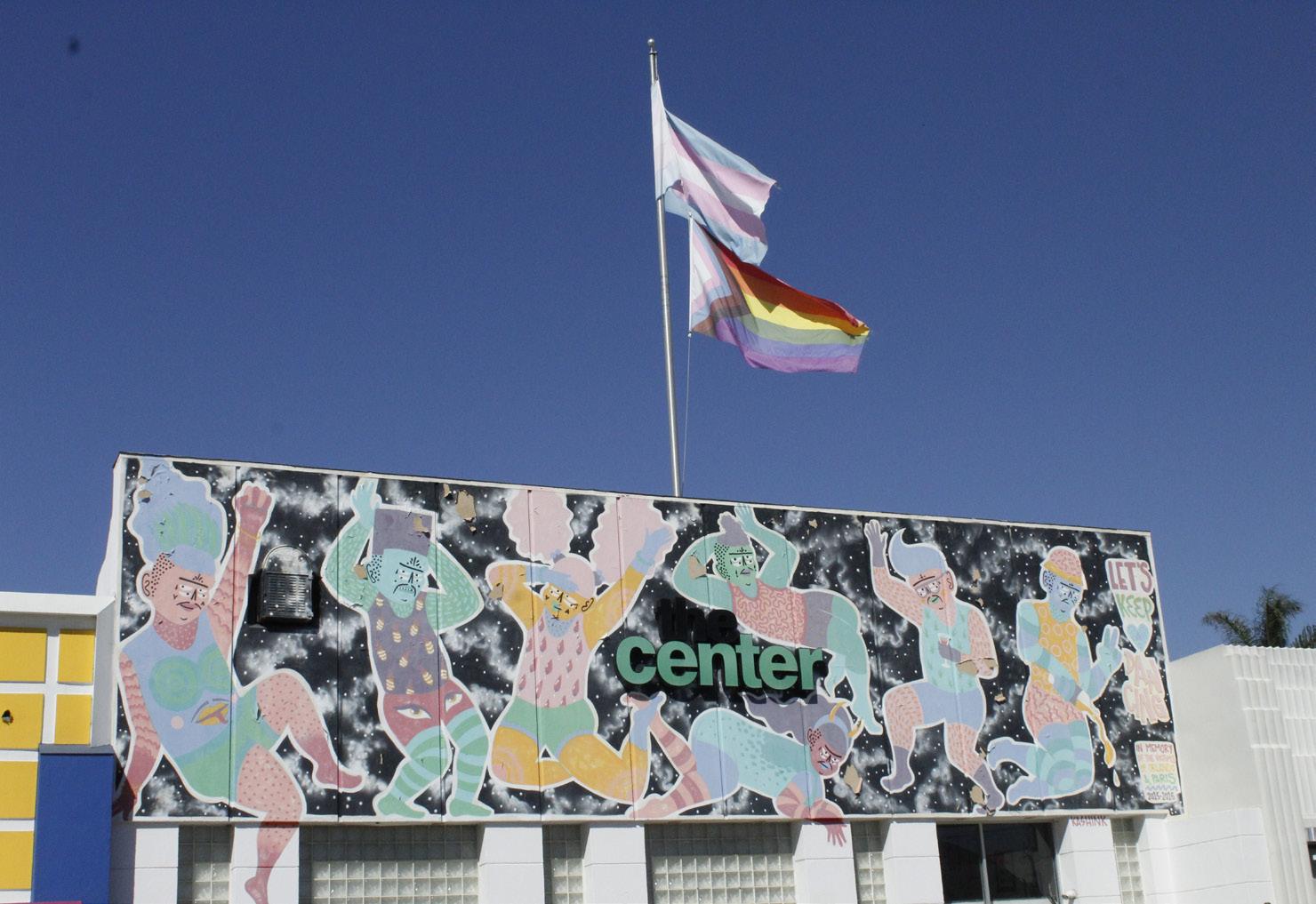
“Intersectionality matters,” Perkins said. “It’s more important to have LGBT representation from backgrounds that historically are not represented.”
Political science professor Matt Lesenyie said he hadn’t heard of Butler before her being named Feinstein’s
successor.
Lesenyie said he believes Newsom may have named Butler in a targeted selection because she is both Black and a member of the LGBTQ+ community.
“If he picked her and then somebody said ‘Oh, and by the way, she’s gay,’ and he was surprised, I just don’t see that happening,” Lesenyie said.
Perkins said Butler should lean into her history as a labor activist, considering all the strikes happening at the moment. She lives in Maryland and has worked as a consultant for both Uber and Airbnb.
August:
In Spain, Carla Antonelli became the country’s first openly trans senator According to the Pink News, Antonelli previously served as the country’s first openly transgender member of parliament in 2011 and joined the Spanish senate after an inconclusive parliamentary election in July
“The awkwardness is that she doesn’t live in the state and her time with Uber as a lobbyist is kind of problematic,” Lesenyie said. “Those I guess weren’t big enough booboos for him to, you know, overcome the benefits he saw to her blackness and her identity, her queer identity.”
Butler must run for re-election in the March Primary Election if she wishes to keep her seat in Congress.
Perkins said perception matters. “It’s important for people to see that there are people who are like them who are in elected office,” Perkins said.
ARTS NEWS 4 Monday, October 9, 2023 daily49er.com | @daily49er
With many instances of anti-LGBTQ+ legislation passing this year, both domestic and international, positive milestones have been overlooked Around the world in 2023, several breakthroughs have occurred, with more to come
Infographic by EL NICKLIN
LUIS CASTILLA / Daily Forty-Niner Trans and pride flags wave high above The LGBTQ Center Long Beach. The Center, located in the Fourth Street Corridor, provides resources and services for LGBTQ+ people in Long Beach.
ASI decides against raising Pride flag for OUTober
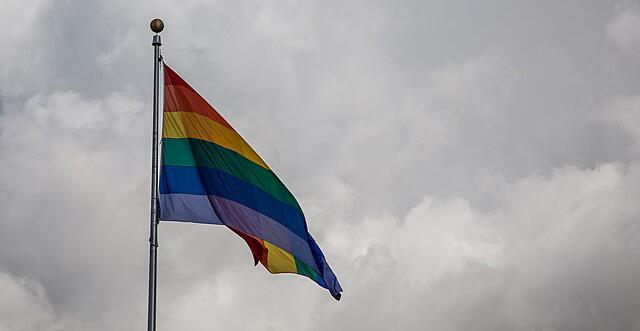 BY ANTHONY ORRICO & MAYA-CLAIRE GLENN News Assistant &
Assistant
BY ANTHONY ORRICO & MAYA-CLAIRE GLENN News Assistant &
Assistant
As a part of the annual OUTober celebration, Associated Students Incorporated had planned on raising the LGBTQ+ Pride flag outside the University Student Union. While the flag was initially going to be raised on Oct. 2, the plans were scrapped on Sept. 18 with no publicly stated reason.
The plan to raise the Pride flag was something not many Long Beach State students knew about, as it wasn’t widely advertised.
“One of the early decisions was to raise a flag, which we all philosophically believe in and would like to do. But after we found out that the flag raising would be part of the celebration, we had to ask for reconsideration,” Miles Nevin, executive director of Associated Students, Inc., said.
According to Nevin, ASI does not have a specific policy on flag-raising at the USU which is what led to the decision to not include it in the celebrations.
However, the information provided by Nevin conflicts with what was said by Avery Morgan, ASI commissioner of LGBTQIA+ affairs, on why the plan
Gender-neutral restrooms accessible across campus
BY SOFIA CUEVAS Staff Writer
In an effort to work toward an all-inclusive campus, all-gender restrooms are open for use at Long Beach State.
Students, faculty and staff members have the option to use one of CSULB’s many all-gender restrooms. There are currently over 50 gender-neutral restrooms on campus.
Gender-neutral restrooms are especially beneficial to the transgender community. They can help lessen the anxiety that comes with using gendered bathrooms, according to the Metro Trans Umbrella Group. Making people choose to identify as either a man or a woman in order to use a restroom often leads to people having to misgender themselves. Giving transgender and gender nonconforming people the option of using a gender-neutral restroom also reduces the chances of them facing harassment or other forms of mistreatment.
“It’s only fair that everybody has access to a restroom without fear of outing, bullying or stigmatization,” said California State Sen. Josh Newman in an interview with CNN, after he recently sponsored a law that requires all-gender
to raise the flag was shut down and by whom.
Morgan asked her advisor, Joe Nino, the assistant director of Government Affairs and Initiatives for ASI, about the decision to not raise the Pride flag and the potential involvement of the Chancellor’s Office. According to Morgan, Nino said the legal team of the Chancellor’s Office told ASI that there could be potential legal repercussions, but could not dictate ASI’s actions directly.
The Chancellor’s Office did not immediately respond to our request for
comment.
Morgan initially approached the Queer Students’ Alliance about working with ASI and in conjunction with the Office of Multicultural Affairs to raise the Pride flag for the entire month of October for the university’s celebration.
“The only communication that we’ve had with ASI so far would be with Avery,” Ashton Ramos, president of the QSA, said. “Previously, we didn’t really communicate with ASI at all, because prior LGBTQ commissioners, they had never even spoken to the club. And so this
is the first time that we’ve actually even had communication.”
Morgan said the plan was originally to raise the flag for the entire month of October. Then, that was dwindled down to just a week, then a day and then canceled altogether.
Ramos expressed frustration over the decision and lack of explanation as to why the flag would not be raised.
“I understand that logic, but to have it so suddenly happen is the thing that irritates me the most about it,” Ramos said. “It’s not the first time that the university has done this to us, where they make a decision, and then they expect us to be okay with it.”
Ramos referred to when the university decided to relocate the LGBTQ+ Resource Center on campus. While CSULB held a meeting for students on where to move the center, the meeting was held during finals week. This barred many students from attending and having an opportunity to adequately voice their opinion.
OUTober celebrations still kicked off on Oct. 2 with no Pride flag being raised. In contrast, Cal State Bakersfield did raise a Pride flag during their celebrations.
For more information on all ASI multicultural events happening on campus, students can visit the ASI website.
restrooms in all K-12 schools by 2026.
The all-gender restrooms at CSULB vary from single-stall restrooms to restrooms made up of rows of many stalls with shared mirrors, sinks and hand dryers.
The Horn Center is home to an all-gender restroom that closely resembles an average gender-specific public restroom, with a long row of stalls that individually lock. The stalls differ from other public restrooms because the doors start at the floor and end at the ceiling, leaving no gaps. This small yet effective detail ensures that students feel safe and comfortable using the restroom.
The majority of all-gender restrooms on campus are single stalls. This is in correspondence with the California state law, signed into effect in 2017, that requires all single-user restrooms to be considered an all-gender restroom. This law required all public facilities to switch any single-stall restrooms labeled as “men’s” or “women’s” to “all-gender” or “gender-neutral.”
Single-stall restrooms are completely separated from the women’s restroom and the men’s restroom. They are often located near the other restrooms, sometimes just down the hall. Each single-stall restroom includes
everything that a normal restroom stall would, except with an added sink and hand dryer. Single-stall restrooms are also one of the most accessible options for students with disabilities, as they are larger and have grab bars on the wall.
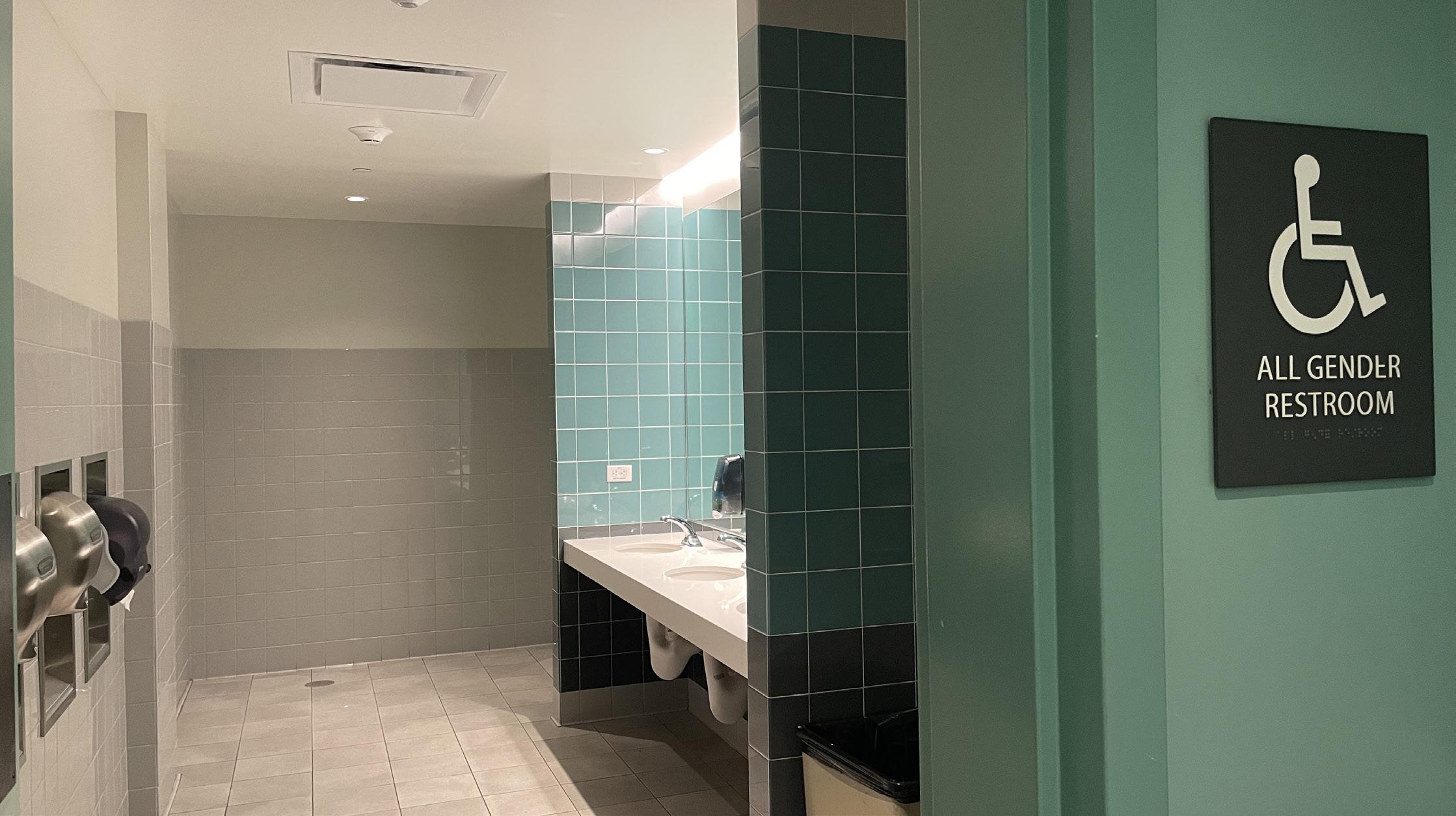
All-gender restrooms can be found in most areas on Long Beach State’s vast campus. A detailed map of every one of these restrooms can be found on the school’s website.
More information on services and resources offered to LGBTQ+ students at Long Beach State can also be found on the faculty center page.
ARTS NEWS 5 Monday, October 9, 2023 daily49er.com | @daily49er
Opinions
Photo Courtesy of Wikimedia Commons Long Beach, Calif.: OUTober kicked off at CSULB on Oct. 2, but the Pride flag was nowhere to be seen. After several meetings, ASI elected not to raise the flag.
SOFIA CUEVAS / Daily Forty-Niner
There are over 50 all-gender restrooms located throughout the CSULB campus. While many of these restrooms are single stalls, the Horn Center restrooms, pictured here, resemble typical gender-specific public restrooms.
New wave of anti-LGBTQ+ legislation directs hostilities towards youth
BY RENZO POCASANGRE Arts & Life Assistant
Hundreds of new instances of anti-LGBTQ+ legislation in 2023 have made their way through the various stages of the ratification process.
Many of these proposed bills target minors and youth of the community, pitting government representatives against their own constituents. These go as far as granting parental control in decisions regarding gender identities, religion and upbringing.
LGBTQ+ youth across the United States are under ubiquitous threat from legislation, with the American Civil Liberties Union tracking nearly 496 anti-LGBTQ+ bills as of Oct. 5. Many of the bills haven’t made it into law, but are continuing to be filed as the year progresses.
Southern states, as recorded by the ACLU, are noted as having a majority of the bills that make up anti-LGBTQ+ legislation. The state with the largest amount of anti-LGBTQ+ legislation is Texas with 54 bills followed by Missouri with 48 bills.
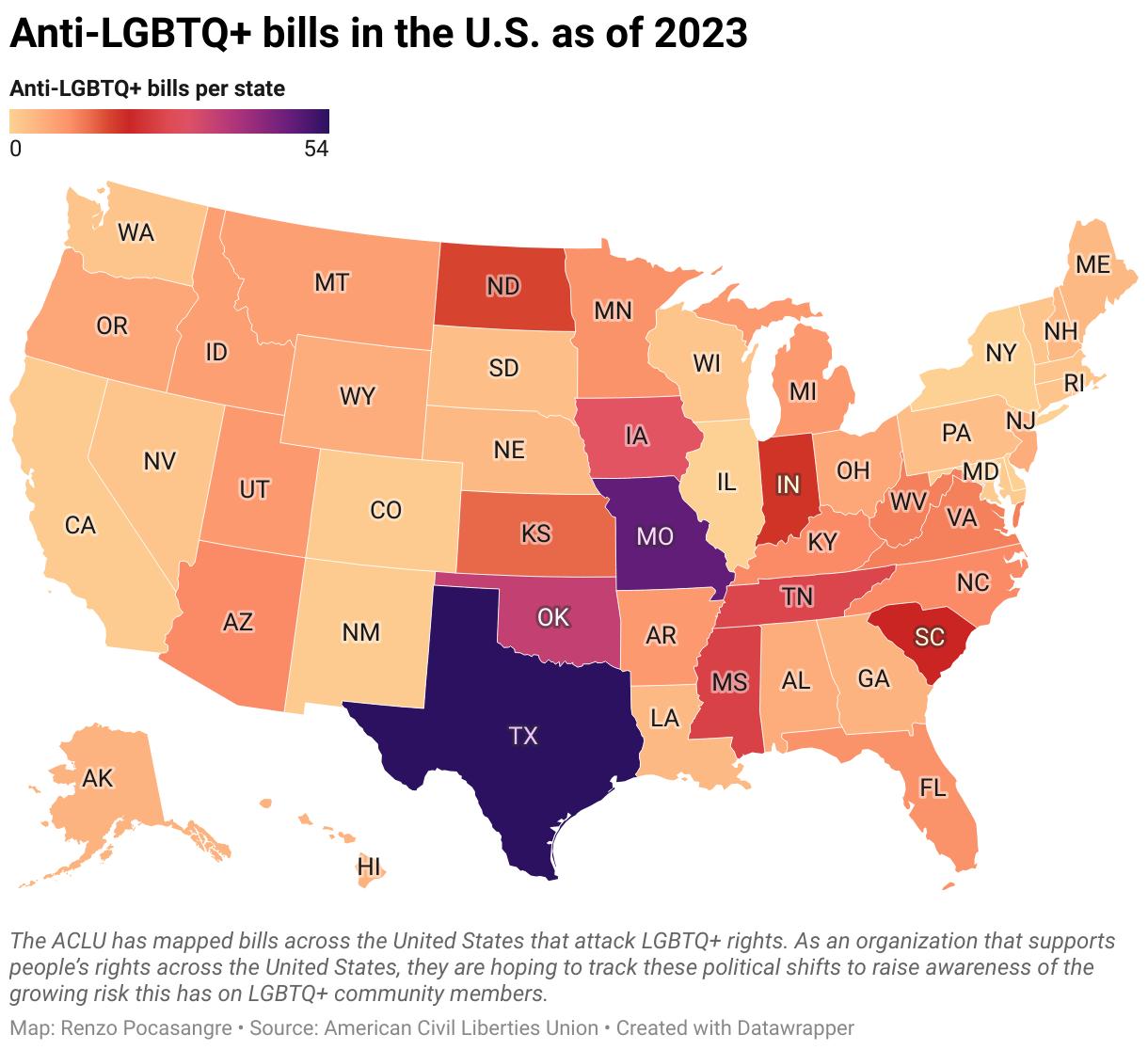
This wave of House and Senate bills introduces an enormous amount of education-related legislation. With 283 bills introduced as of April 3, public schools have seen a rise in anti-LGBTQ+ rules. Some of these include restrictions on gender identity or sexual orientation, related classroom discussions and even prohibiting the use of preferred pronouns.
Students placed in environments such as these are faced with the challenges of navigating topics of sexual orientation and gender identity without adequate resources. LGBTQ+ youth are some of the most vulnerable members of this community, with mental health symptoms like anxiety and depression being prevalent.
The most recent bill making headway out of the state of Ohio, House Bill 68, also known as “Save Adolescents from Experimentation Act (SAFE Act),” seeks to obstruct LGBTQ+ youth’s access to gender health services and bar trans athletes from women’s sports in the state of Ohio.
HB 68 originally had only encompassed access to gender health services. Following an additional bill, House Bill 6 became adapted with HB68,
combining forces to gain more common ground amongst Ohio House members.
The Ohio House drafted wording on HB 68 that appears to misdirect mental health services. The wording guides mental health experts toward other outlying reasons for LGBTQ+ youth seeking counseling contrary to any physician-patient privilege. A section directly out of HB 68 states what a mental health expert should do when confronted with LGBTQ+ youth seeking assistance.
“No mental health professional shall diagnose or treat a minor individual who presents for the diagnosis or treatment
of a gender-related condition without screening the minor individual for both of the following during the course of diagnosis and treatment:
(1) Other comorbidities that may be influencing the minor individual’s gender-related condition, including depression, anxiety, attention deficit hyperactivity disorder, autism spectrum disorder, and other mental health conditions;
(2) Physical, sexual, mental, and emotional abuse and other traumas.”
HB 68 was passed by the House on Sept. 13 and currently awaits approval from the Senate.
The last piece of legislation approved by both the Senate and the House of Representatives passed through the state of North Carolina. Senate Bill 49, otherwise known as the “Parents Bill of Rights,” is a bill that grants parental rights over youth’s decisions, whether LGBTQ+ or not, regarding religion and upbringing.
Democratic Gov. Roy Cooper’s veto of the “Parents Bill of Rights” was overturned by both the North Carolina House and Senate. Many members of the North Carolina public ridiculed the decision, making the claim that the Republican supermajority is targeting LGBTQ+ youth, rather than budgeting for education, employee healthcare benefits or the increase in natural climate disasters.
LGBTQ+ youth in the U.S. are facing an unprecedented reversal in legislative support. With Congress seemingly still reeling from ousting representative Kevin McCarthy as Speaker of the House, the Republican party is still unsure of who will officially take the mantle of Speaker when Patrick McHenry’s temporary hold is over.
Resources available for LGBTQ+ youth include The Trevor Project and others located on GLAAD’s website, a non-profit organization focused on LGBTQ+ advocacy.
6 Monday, October 9, 2023 daily49er.com | @daily49er ARTS NEWS
LGBTQ+ youth across the United States are under ubiquitous threat from legislation, with the ACLU tracking nearly 496 anti-LGBTQ+ bills as of October 2023.
Students that identify as LGBTQ+ across the country are facing new challenges as they return back to school.
Pau Pescador displays their capsule of self-expression through collage
BY NUELLE OBASEKI Design Assistant
“The Emancipation of P.P.” is an exhibit consisting of nine photographic collage pieces created by contemporary artist and Southern California native, Pau Pescador.
Pescador is a transgender nonbinary individual with a growing collection of works in film, photography and performance. They graduated with a MFA from University of California, Irvine and a BFA from the University of Southern California.
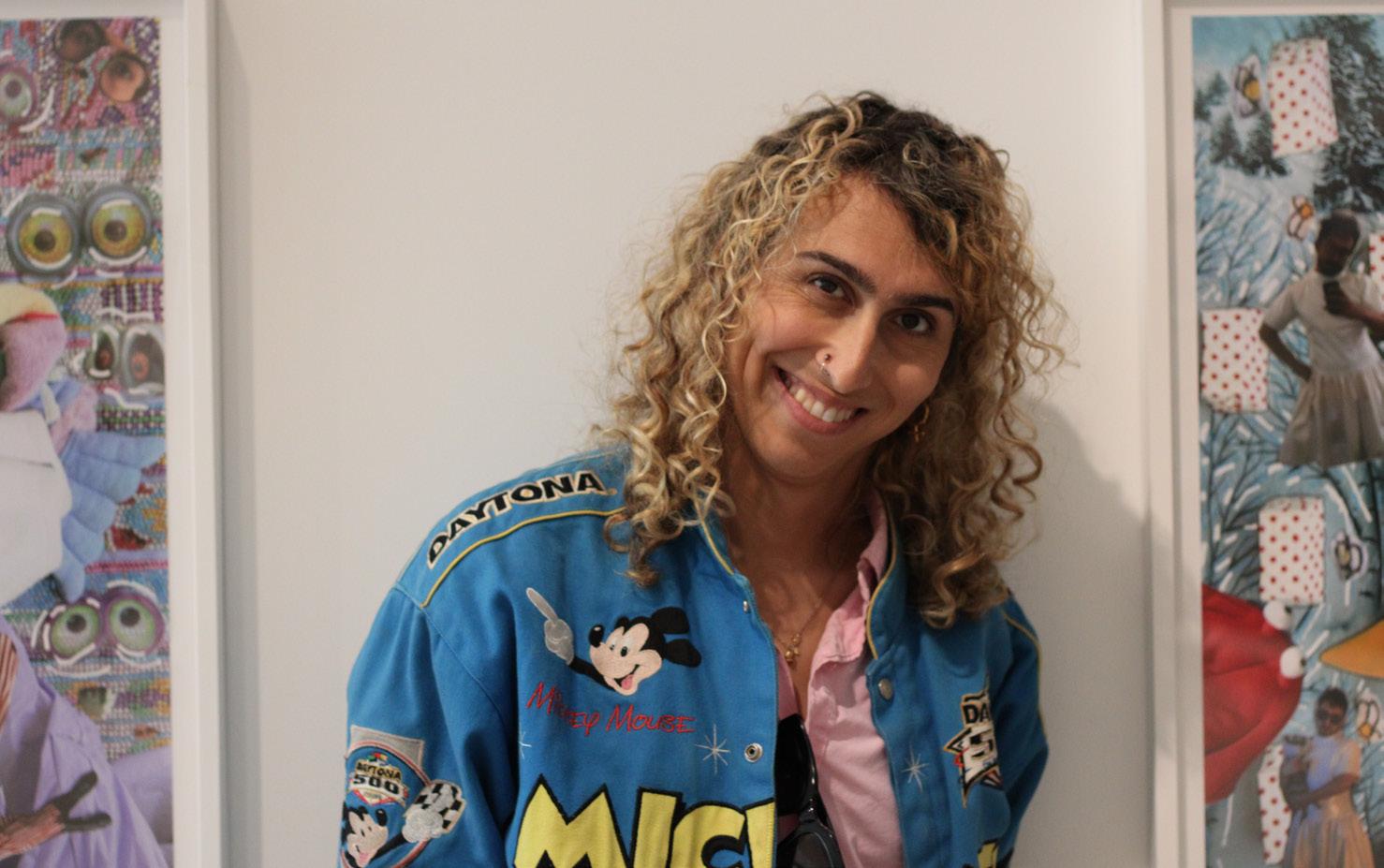
Attendees of the Oct. 3 Tuesday Talk at the Carolyn Campagna Kleefeld Contemporary Art Museum toured around the gallery with fascination as they analyzed Pescador’s work before and after the artist’s informative discussion.
“My practice as a whole is usually dealing with the personal. I start with what I know,” Pescador revealed at the Tuesday Talk.
“Broader topics surrounding institutions that I used to talk about in my work are told through the lens of my own experiences.”
Acknowledging that their personal experiences have been radically different from others, Pescador considers the subjectivity of how they see the world around them as a grounding moment of how to interpret events that happen in
their life.
Two years prior to their experimentation of expression, Pescador spent a lot of time reflecting on their relationship with presentation, gender, fabric and clothing.
The visual lexicon of the artist’s work began as a series of digital prints and materials gathered from vintage and dollar stores. Saturated shapes and patterns seen in the collages are a result of clipping still life portraits in different outfits, combined with objects related to personal moments in Pescador’s life.
At the time the images for the collages were produced, Pescador was in
Queer studies minor offers diverse course for students of all disciplines
BY ANTHONY ORRICO News Assistant
The queer studies minor is a part of the women’s, gender and sexuality studies program within the College of Liberal Arts. The interdisciplinary program is designed to help students gain a greater understanding of LGBTQ+ culture, identities and history according to the program’s founder, Jennifer Reed. Reed is currently a professor of women, gender and sexuality studies.
“Since we do gender and sexuality studies, it seems like a perfect thing for us, but we also wanted to make sure it drew from courses across the university,” Reed said. “And so, the minor itself is made up of courses from other colleges and other departments in the College of Liberal Arts.”
The minor requires all enrolled students to complete two introductory classes, WGSS 205 and WGSS 416 - Introduction to Queer Studies and Queering Gender. Beyond that, students must take three additional courses from a variety
of departments including, but not limited to, political science, American Indian studies, English and history.
“Those courses are mainly a way of helping students understand sexuality more broadly. And focusing on what we would call non-normative sexuality, so challenging what we refer to as heteronormativity,” Lori Baralt said, the women, gender, and sexuality studies department chair.
Reed estimates that since the program’s beginning in 2013, there have been 50 to 100 students who have enrolled. However, the department is looking to expand and make more students aware of the program.
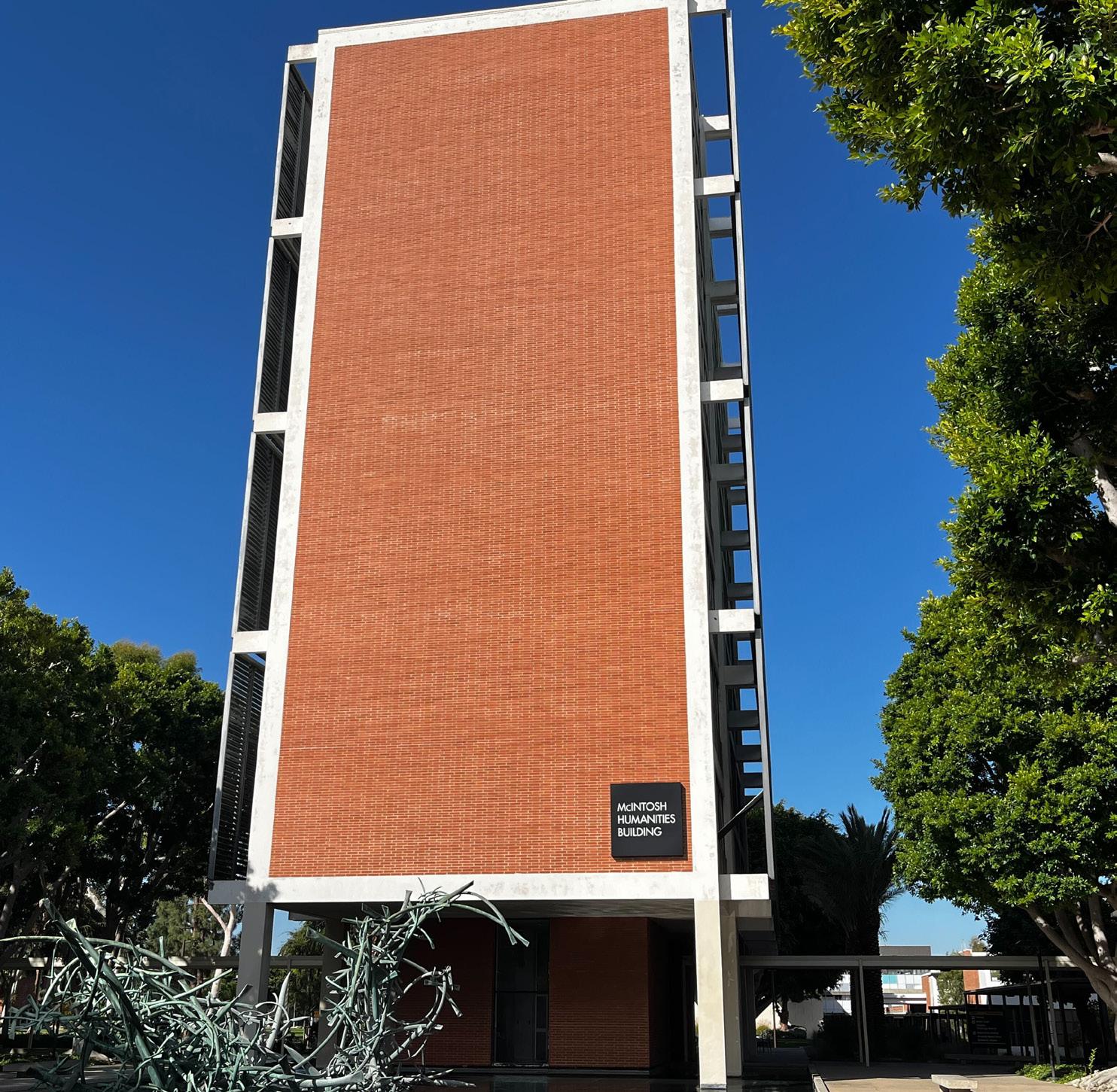
“We’re hoping to just get more visibility and more interest in it because there is interest but most people don’t find out about it until they’re almost done and they feel like they can’t take on a minor,” Reed said.
A course that Reed highlighted was Queer Law, which focuses on the intersection of gender identity and sexuality within state and federal regulations.
“Especially now, there’s such an attack on, especially trans identities, but any kind of LGBTQ identities are really
isolation during the latter half of 2020, experimenting with their gender identity expression through haircuts, makeup and different clothing. As the world shut down, Pescador would find themself at home getting dressed every day, sharing selfies to their private Instagram account and building an archive of portraits.
“The fabric on my body became in itself a different color palette or pattern, mimicking the colors and patterns of the materials in my studio,” Pescador said.
“My body became a material in a different way than when I do my performance art, almost functioning like paper dolls.”
The images, produced across the timeline of a couple of years, are meshed together to demonstrate a radical shift in their physical appearance through different stages of hair lengths, facial hair and hormonal changes.
Event attendee Michael Gavin asked the artist who the primary audience of Pescador’s work is, to which they earnestly answered, “Myself.”
“How important is play, and this idea of joy and pleasure to your work?” Ana Vikram inquired. The question is relevant considering Pescador’s newer works have darker themes and heavier topics.
“I cannot make work in a way that is so directly serious, it is not fun to look at,” Pescador said.
“It always starts and ends with play, and along the way other things happen.” In response to the question, they quoted political activist, Emma Gouldman, “I don’t want to be a part of a revolution that doesn’t involve dancing.”
Pescador’s work will be on display at the Kleefeld Contemporary Art Museum until Dec. 15. The nine collages displayed are a few of the many works that they currently have on exhibition, as they have another photographic and video-based solo show on view with Tyler Park Presents titled, “When the Home Becomes Body.” Their self-expressive collages document a colorful, fun and interpretive abstraction of the artist’s experiences and presentation that continue to be appreciated by the public.
under threat in the country. And so, I’m hoping that also gets people’s attention,” Reed said.
Baralt said that she feels this program would be a good fit for students of any major, and she hopes that students will
gain a greater understanding of how social structures shape lived experiences.
“I think for our program as a whole students develop really strong critical thinking skills, oral and written communication,”
7 Monday, October 9, 2023 daily49er.com | @daily49er ARTSARTS & LIFE
Baralt said.
JAYLYN PRESLICKA / Daily Forty-Niner
The queer studies minor falls under the women’s, gender and sexuality department which is located in the McIntosh Humanities Building in room 819. The minor aims to give students an opportunity to learn more about queer identities, the culture and history through the program’s founder, Jennifer Reed.
SAMUEL CHACKO / Daily Forty-Niner Artist Pau Pescador poses next pieces of art they created after the artist talk. They brought up the importance of creating work that is fun and not too serious.
Associate professor flourishes in the face of transphobic adversity
BY MAYA-CLAIRE GLENN Opinions Assistant
Since 2017, Dr. Kathryn Perkins has been a professor at Long Beach State. She began her journey on campus as an assistant professor in political science and recently started her first semester as an associate professor in political science and the interim director of legal studies.
Since beginning her gender transition in 2019, Perkins has worked with other trans faculty to establish the CSULB Trans Advocacy Coalition. She has witnessed more change and support from President Jane Close Conoley and the university since coming out to begin infrastructural policy changes that will aid trans students, faculty and staff.
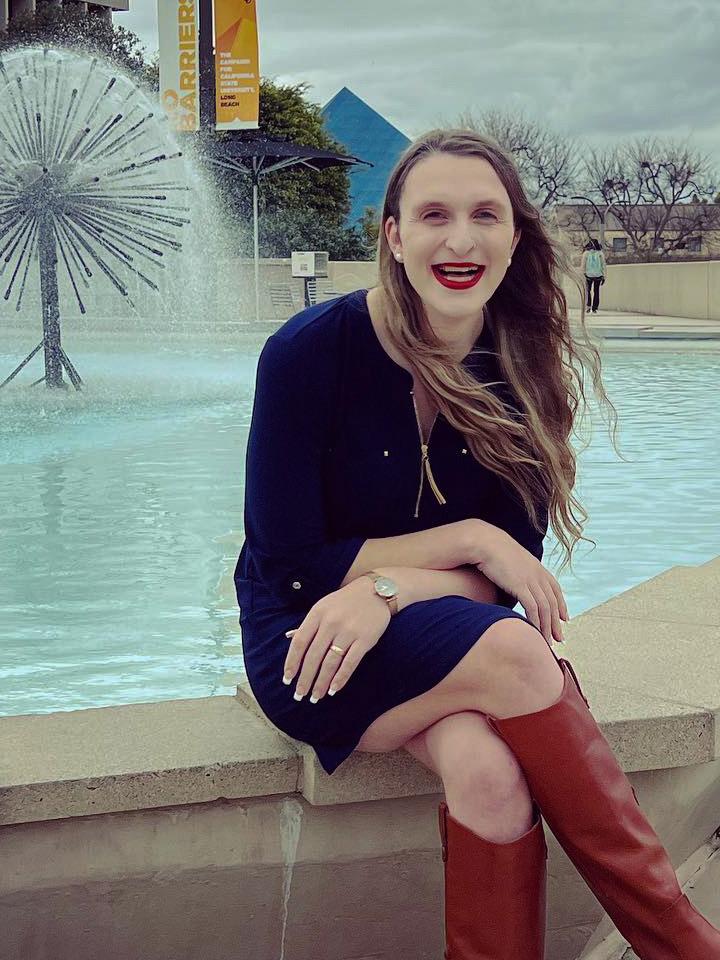
“I really feel like the climate on campus has improved in the last few years as we’ve been able to work within that coalition so, I think that’s something that’s been really encouraging,” Perkins said. “The atmosphere here has been trying to approach inclusivity and acknowledging where there are gaps.”

While Cal State Long Beach has slowly become more inclusive to genderqueer students, this is not the case everywhere. Across the United States, 574 bills, including anti-trans legislation, have been introduced in 49 states including Texas, where Perkins received her doctorate.
When asked about the tenure she received at Long Beach earlier this year, she shared how grateful she was because that opportunity may not have been afforded to her in Texas.
“I am happy, relieved, grateful because I think I couldn’t have anticipated that the climate for trans people would become this toxic, and, so, I feel very fortunate to be able to really plant deep roots and be firmly established in a com-
munity and university that is extremely open and affirming of trans faculty and supportive of research and teaching that I do,” Perkins said.
She teaches an upper-division course on queer law that covers the historical regulation of gender and sexuality, as well as LGBTQ+ politics in the modern era.
In recent years, anti-trans rhetoric has seen a stark increase. Republican candidates have openly discussed a nationwide ban on gender-affirming care and Perkins offered a bit of insight on the topic. She also shared what could potentially happen to the LGBTQ+ community if Donald Trump were to be re-elected for a second presidential term.
“The emotional impact of having your rights attacked from the White House is difficult for many people. So, I think that both the policy impacts and emotional trauma of being a scapegoat in the midst of a fascist cultural war is really difficult, but I do think that there are reasons to be hopeful,” Perkins said.
“I think in some ways it’s going to get worse before it gets better and it’s important to be sober and realistic about that. It is important for our allies to understand that, especially nationally.”
She also touched on the beauty of trans people feeling more comfortable coming out than ever before despite great adversity. She hopes that this increased comfortability can provide hope and support for those within the community. Perkins shared that without increased trans visibility in the 2010s, she would not have felt safe enough to seriously consider her own gender transition.
“I really hope that in 20 or 30 years, a trans person can come out, have their party and move on with their lives and just be themselves without having to live in fear.”
ARTS & LIFE 8 Monday, October 9, 2023 daily49er.com | @daily49er
Courtesy of KATHRYN PERKINS
Kathryn Perkins has been an educator at CSULB since 2017. Since coming out, she has helped the university make integral changes toward becoming more inclusive for trans and gender nonconforming students, faculty and staff.
Dr. Kathryn Perkins opens up about her journey as a trans woman and an educator in a volatile political climate.
PAID ADVERTISEMENT
”I feel like the climate on campus has improved in the last few years as we’ve been able to work within that [CSULB Trans Advocacy] coalition so I think that’s something that’s been really encouraging.
Dr. Kathryn Perkins Associate Professor
sea Krob blends social advocacy and art
BY SAMANTHA CORTES Arts & Life Assistant
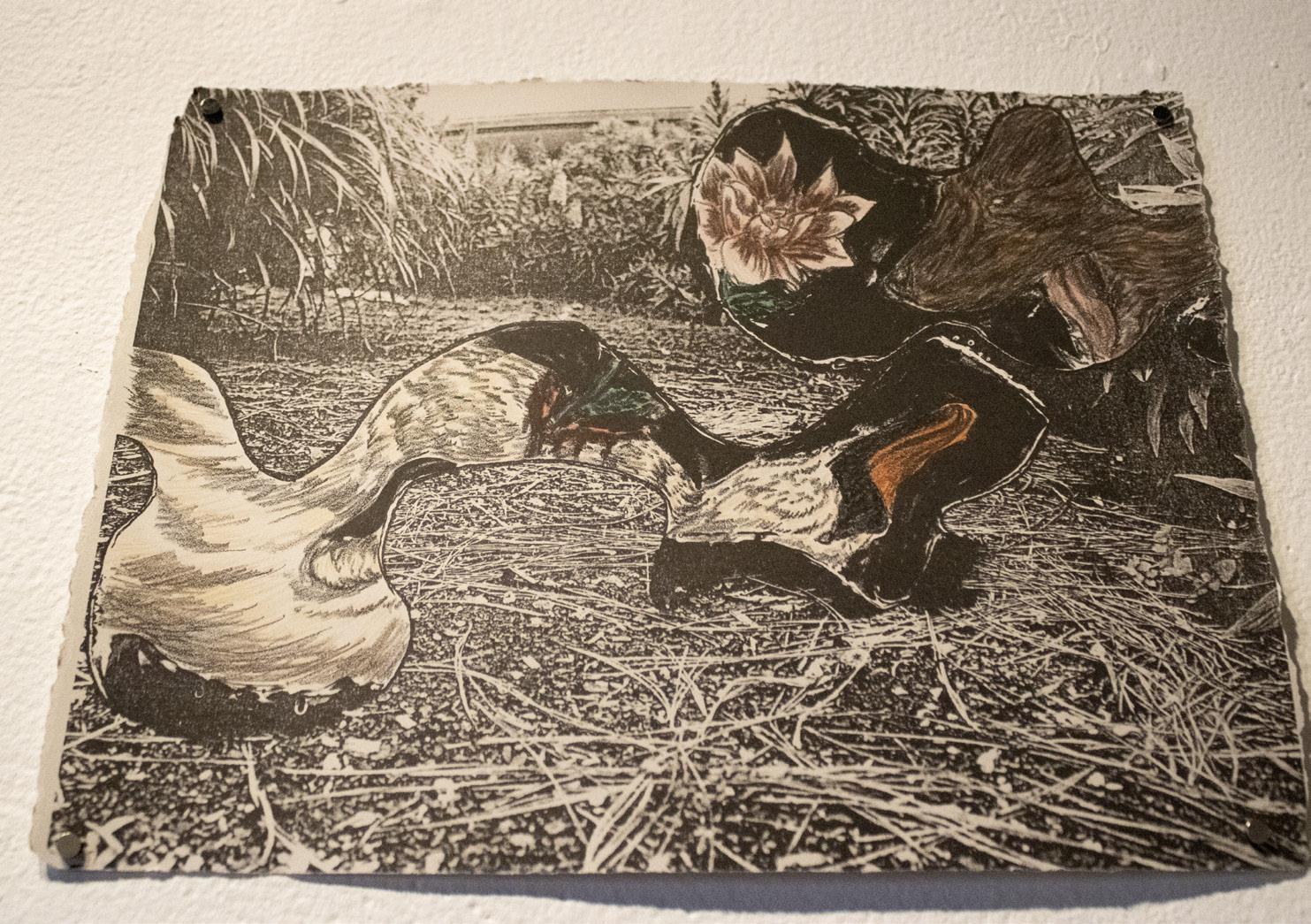
For Los Angeles-based artist sea Krob, periods of grief and uncertainty have become far too common.
Krob and their family have battled polycystic kidney disease for years, a chronic disorder that can dramatically enlarge the kidneys and damage the brain’s blood vessels. Krob’s father died in 2018 after not receiving a kidney transplant for over 11 years.
“My experiences lead me to being very, very passionate about things,” Krob said. “When I dive in, I dive in all the way.”
Through deep introspection of their own life and exploration of larger societal issues, Krob has created boundary-pushing pieces that display the intersection between art and social equity.
Krob began taking courses at community colleges in Arizona during the rise of digital photography in the 2010s. Despite the large-scale embrace of this newer technology by other photographers, they fell in love with working in darkrooms.
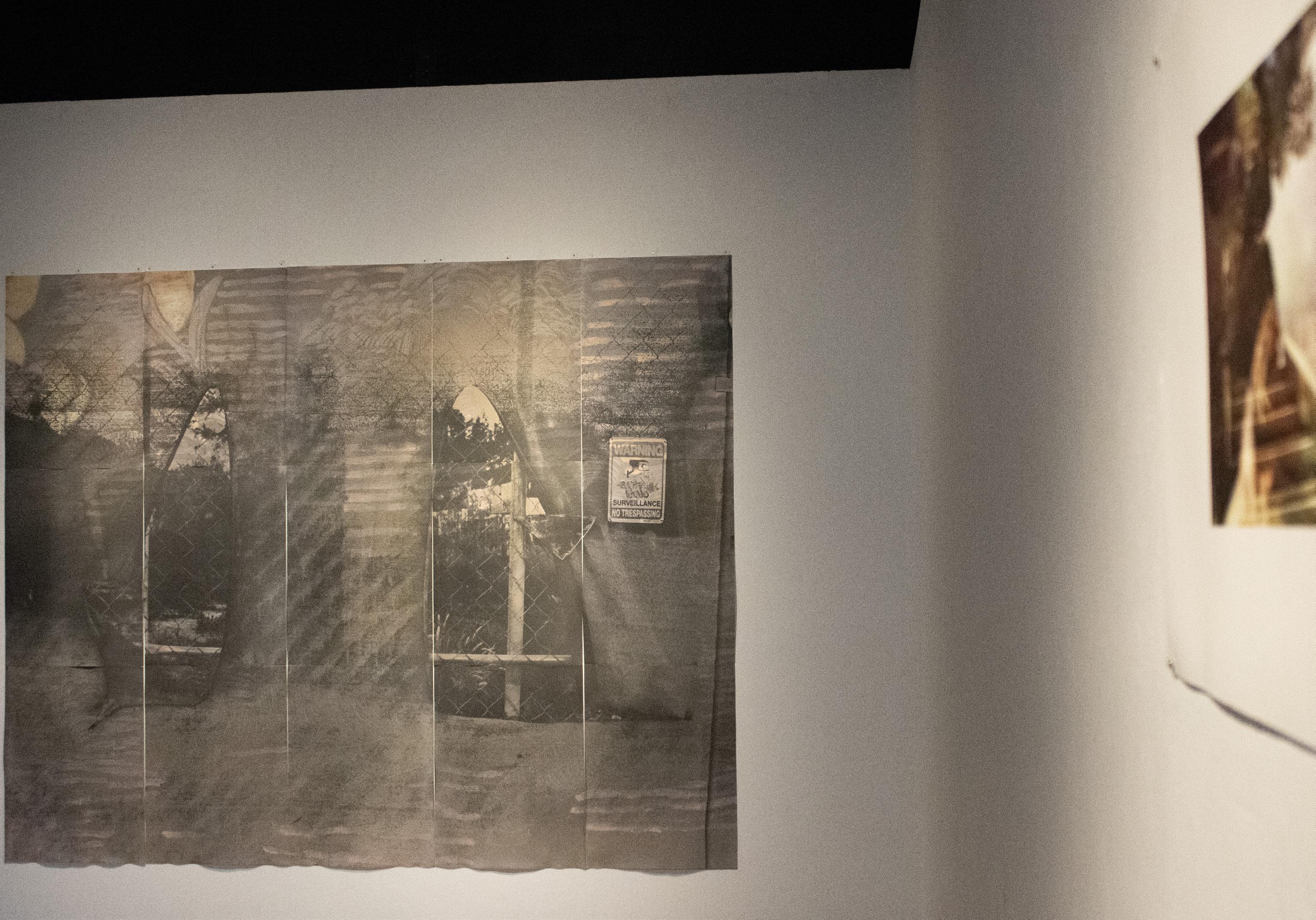
“I find it very magical and healing,” Krob said.
Krob moved to Southern California in 2013 to continue their degree at Chaffey College, where they began to practice large-format photography and shifted from commercial work to fine art photography. They finished their undergraduate degree at the University of California, Los Angeles and began graduate
school at CSULB last fall.
Throughout their photography career, they have examined the intersection between societal issues and internal conflicts.
“Back at Chaffey, I was thinking about when people are truly themselves,” Krob said. “Looking back at it, it was a way for me to process gender identity and stuff that I hadn’t really thought of.”
Krob came out as transgender and non-binary two years ago. The artist said that their identity plays a vital role in the themes of their art and the methods of creating it.
“Even if it isn’t blatantly obvious in my work, it is pretty much how I process and make things,” Krob said. “I always like more shades of gray and more nuance. I don’t like a simple answer … I don’t like being boxed in.”
Krob said that there are still moments when they experience imposter syndrome about their identity.
“I still feel very new to the LGBTQ community,” Krob said. “People come out later in life and that’s totally valid, but I’m still trying to learn the ropes.”
The artist is now using their work as a form of advocacy, hoping to foster conversations about underrepresented issues and marginalized communities. They are in the process of photographing kidney disease awareness walks across California.
Kidney disease is often called the “silent killer” because symptoms appear slowly, causing patients to often go untreated for years.
“Other students have come forward to say their parent has end-stage renal failure, is on dialysis, or has unfortunate-
ly died from kidney failure,” Krob said. Krob’s other projects relate to their long, frequent commutes to campus, which highlight the underfunded and often inaccessible public transit system in Los Angeles.
The artist relies on public transportation to attend their courses in the photography graduate program at CSULB, commuting back and forth about 20 hours a week.
“I’ve been taking a lot of double exposures of my public transit commute to and from school,” Krob said. “I’m thinking about access, equitability, the lack of public restrooms on public transit and
how that impacts renal health in the body.”
In the future, Krob would like to organize a fundraiser that advocates for shorter wait times to receive renal health care. They envision themselves continuing school and establishing a career in Los Angeles, possibly teaching art history at a public institution or working at a community dark room.
“I’m a grad student and I’m still figuring it out,” Krob said. “There’s no wrong way to be a non-binary artist, so, I’ll continue with the right way that fits me.”
9 Monday, October 9, 2023 daily49er.com | @daily49er ARTS & LIFE
MARLON VILLA / Daily Forty-Niner A mixed media collaboration used a photograph taken by Krab, which was then manipulated by Caldinos with printmaking techniques.
In an exhibition titled “Collision,” Krob displayed their work in the on-campus Merlino Gallery Oct. 1 through Oct. 5. This exhibit was a collaboration with printmaker Jo Caldinos. There were three prints featured, all using different experimental printing techniques.
CSULB graduate student defies the conventions of art and photography through social advocacy.
Come out this month to celebrate OUTober
EL NICKLIN / Daily Forty-Niner
There are LGBTQ+ events for everyone on campus during OUTober, from movie screenings to professional development events.
BY JAHIR OLVERA Social Media Assistant
The celebration of OUTober at CSULB allows students, faculty and staff to learn more about the LGBTQ+ community, educate themselves and others while also spending time bonding socially over shared experiences. CSULB will be hosting a variety of events this month to promote LGBTQ+ Pride and representation.
Here is a comprehensive list of the events being held on campus for OUTober:
Supporting LGBTQ+ College Students Training
Organizer: LGBTQ+ Resource Center
Date: Oct. 10, 12 p.m. - 1 p.m.
Where: Zoom Meeting
Description: A training to learn new strategies to better advocate for, and be in solidarity with, the LGBTQ+ community.
QTBIPOC Space
Organizer: Black Resource Center and LGBTQ+ Resource Center
Date: Oct. 10, 3 p.m. - 4:30 p.m.
Where: PH1 230
Description: A community space focused on queer, trans, Black and Indigenous people of color, facilitated by community workers, Cuties Los Angeles.
Coming Out of the Shadows
Organizer: Dream Success Center, LGBTQ+ Resource Center and F.U.E.L.
Date: Oct. 1, 5 p.m. - 6:30 p.m.
Where: USU Ballrooms
Description: Come and see OUTober keynote speaker, Dulce Vasquez. Vasquez is a formerly undocumented LGBTQ+ Latina currently serving as assistant vice president for Los Angeles’ outpost of Arizona State University. She has recently launched a campaign for the California State Assembly.
Know Your Rights
Organizer: Trans Advocacy Coalition, LGBTQIA+CCC and Department of Political Science
Date: Oct. 23, 3:30 p.m. - 5:30 p.m.
Where: SSPA 211
Description: The LGBTQ+ community has been attacked through legislation across the U.S. this past year with many proposed anti-trans bills. Join Dr. Kathryn Perkins as she discusses LGBTQ+ rights.
Career Insights for LGBTQ+ Students
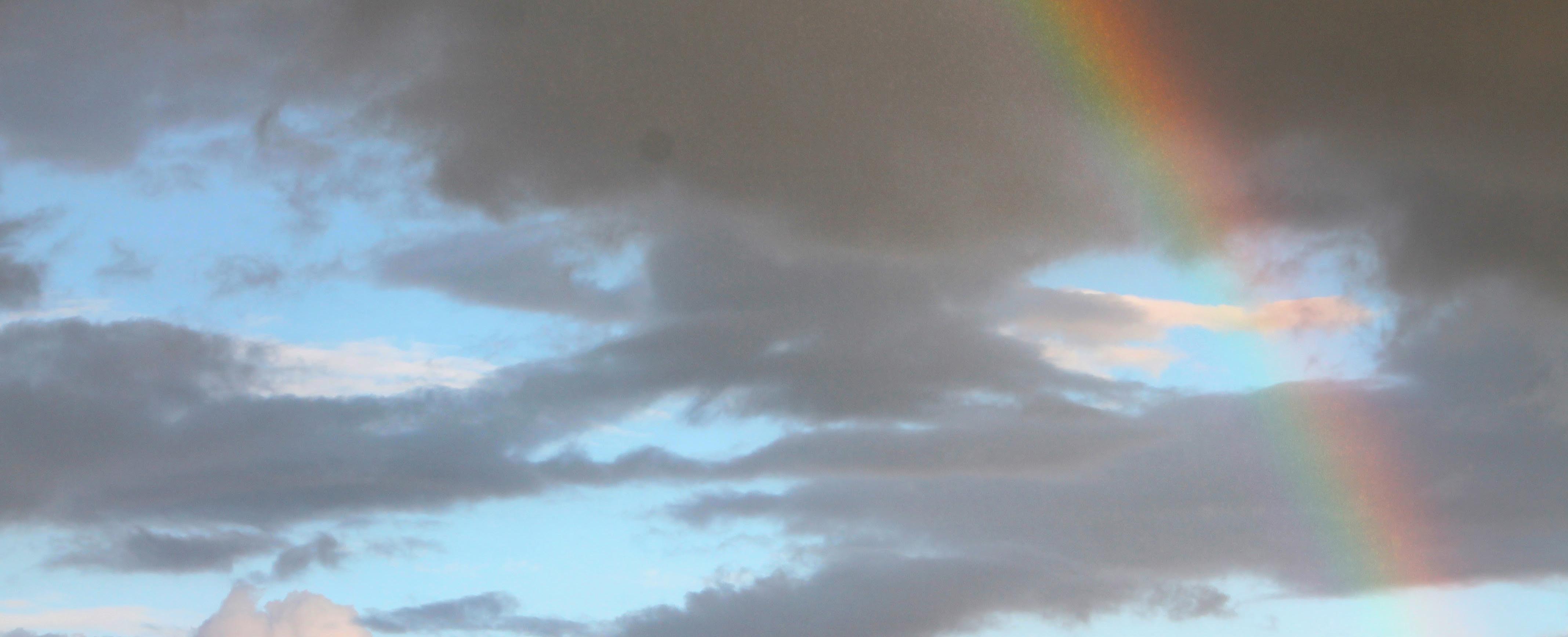
Organizer: Career Development Center
Date: Oct. 26, 4 p.m. - 5 p.m.
Where: Zoom Meeting
Description: Gather tips and tricks regarding career exploration and application from a panel of LGBTQ+ professionals.
Friday the 13th Double Movie Night
Organizer: AAPI Resource Center and LGBTQ+ Resource Center
Date: Oct. 13, 5:30 p.m. - 10:30 p.m.
Where: USU Auditorium
Description: Join the LGBTQ+ and AAPI Resource Centers as they host a double feature movie night. First film – Everything Everywhere All at Once
Second film – Hocus Pocus
Drag as Resistance and Resilience
Organizer: Carolyn Campagna Kleefeld Contemporary Art Museum, LGBTQ+ Resource Center, Trans Advocacy Coalition, LGBTQIA+CCC and Department of Sociology
Date: Oct. 19, 5 p.m. - 7 p.m.
Where: Carolyn Campagna Kleefeld Contemporary Art Museum
Description: Come view an exhibit featuring drag culture from the ‘80s and ‘90s and participate in a discussion on the impact of drag on the LGBTQ+ community, led by Dr. Shae Miller.
Unpacking Cisgender Privilege
Organizer: Counseling and Psychological Services
Date: Oct. 25, 11 a.m. - 12:30 p.m.
Where: Venice Beach Room USU 306
Description: Dr. Lauren Jensen will guide participants through experiential activities to facilitate self-reflection on cisgender privilege.
For more information about the OUTober events, scan the QR code below to visit the CSULB Events and Orgs website.


ARTS & LIFE 10 Monday, October 9, 2023 daily49er.com | @daily49er
PAID ADVERTISEMENT
Living euphorically through embraced self-identity
BY MAYA-CLAIRE GLENN Opinions Assistant
One of the most difficult aspects of coming out for me was the environment I lived in. While my parents were accepting, growing up near North Hollywood and going to college in Glendale, displays of hatred against the LGBTQ+ community have increased in recent years.
I am proud to live as a transgender woman and a lesbian. But with the political climate in the United States and many states trying to pass anti-trans legislation, life can be stressful and tiring.
Transferring from Glendale College and coming to Long Beach State has been euphoric.
From the moment I was first contacted by the university, they were using my chosen name in emails. While this may seem like a small detail, other schools I applied to, such as California State University Northridge, reached
BY JAYLYN PRESLICKA Copy Assistant
Coming out can be a pivotal moment in someone’s life. While the idea of “coming out” has been a celebrated experience in the LGBTQ+ community, there is a debate centered around the practice of heteronormativity.
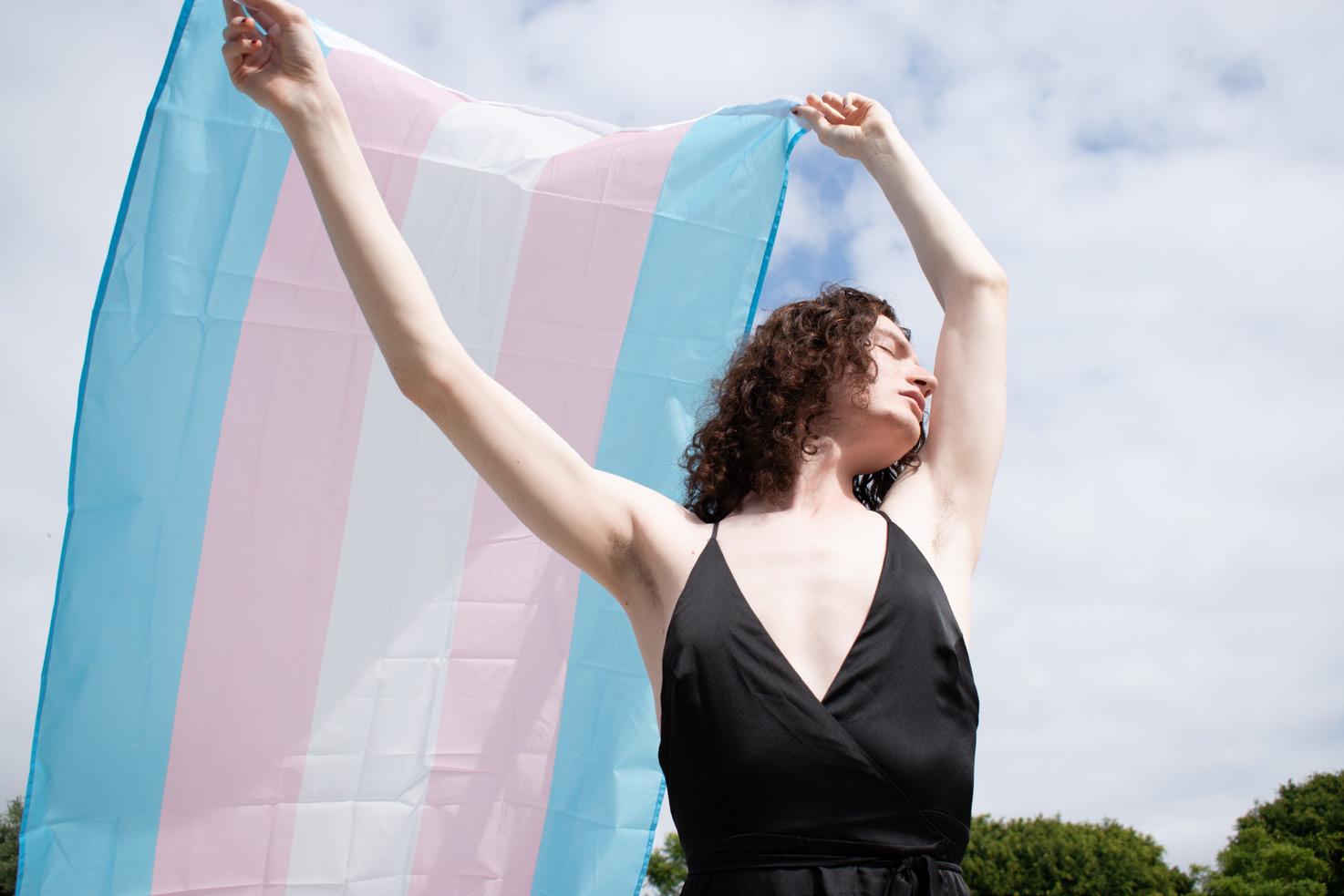
“Coming out” refers to the term “coming out of the closet,” a phrase that dates back to the early 20th century. Originally, the term was not in reference to homosexuality, but rather a woman coming out into the dating world. Over time, the phrase was adopted into LGBTQ+ vernacular and used to describe coming out to other queer people.
While the practice is usually meant to be celebratory, it implies that heterosexuality is the social norm, and “coming out” as anything from heterosexual is deviant. While it is a radical idea, some choose not to disclose their sexuality and live as if it is a part of the standard.
As rainbow capitalism has become more mainstream, the mainstream continues to show their weak allyship by supporting anti-progressive practices such as “coming out.” It calls into question the truly radical idea of being queer, and how practices in the community have evolved into something for everyone, alienating the original members of the movement.
“Coming out” isn’t just about expressing that you are different, it’s about
out to me using exclusively my dead name. While I was already firmly set on attending CSULB, getting an acceptance letter from CSUN with a name I haven’t used in years definitely didn’t work in their favor.
For the few years that I have been out, being gendered correctly was not something that occurred consistently, as I repeatedly found myself having to correct people. It can be exhausting, but at CSULB, it’s been different.
I have not once had to use my dead name while attending CSULB. Every class, professor and student has not only been accepting, but accommodating. For the first time in my life, I don’t have to justify who I am, I can just be me. While I still feel passing glances of judgment, they are much fewer than those I received back home in Burbank.
Most of the students and faculty that I have encountered here have introduced themselves with their name and pronouns. With this being something that I have been doing for years, it makes me feel much less alienated to see others doing so as well. It is validating that
people want to hear who I am instead of assuming how I identify.
Being able to be open and proud of who I truly am has been absolute bliss, and having the chance to be part of a community that accepts me for me has led to big improvements in my mental health. It feels really good to be able to meet other people who share similar experiences with being queer, especially because this was something I struggled to find in my hometown.
Fellow staff members on the Daily Forty-Niner and other members of Beach Media have embraced me with
Leave heteronormative ideas OUT of the LGBTQ+ community
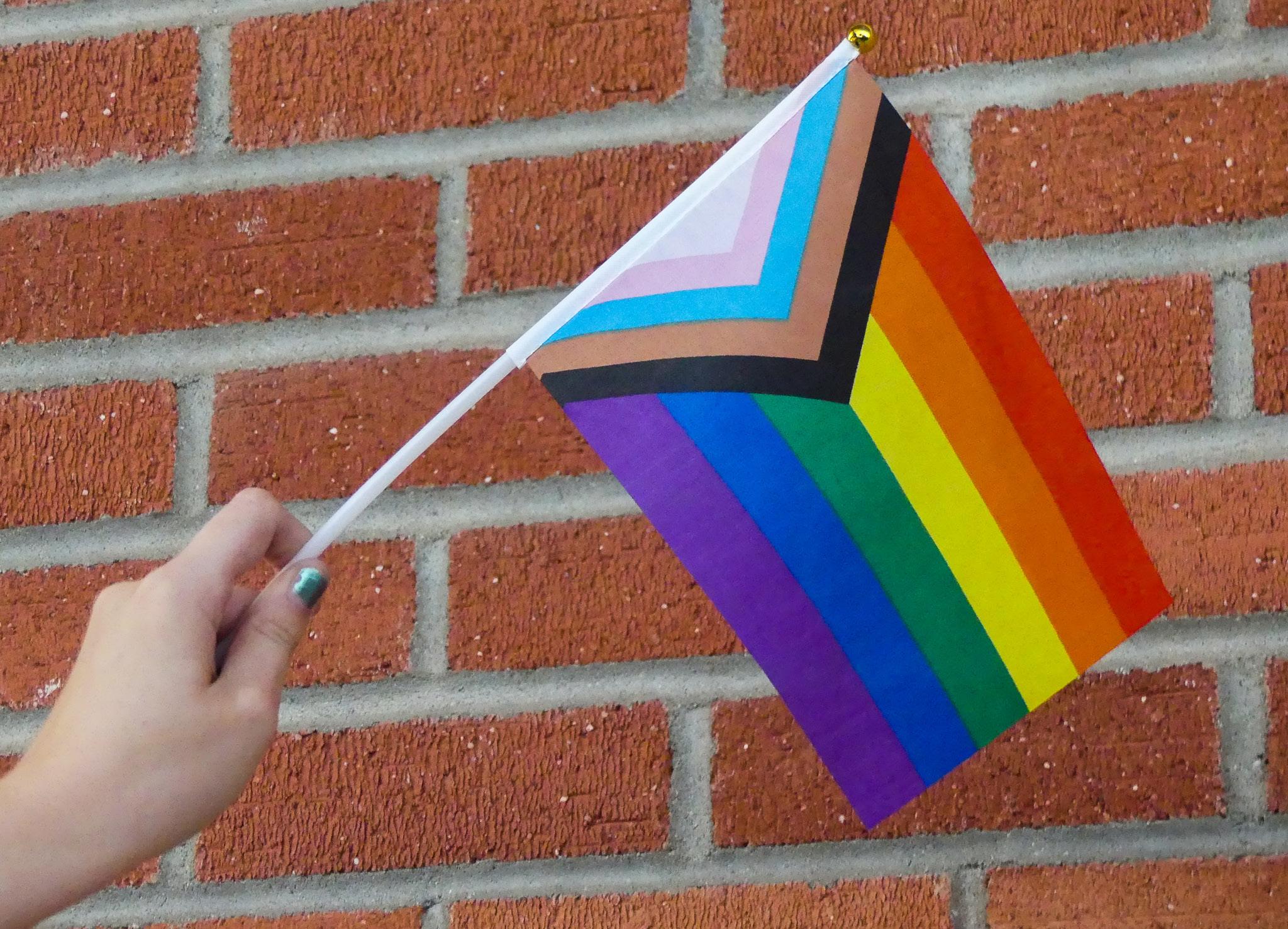
open arms. From the first day I met them all, I felt welcomed and at home.
Not having to hide who I am has also granted me new experiences. I can fully embrace myself, whether that be as a transgender person, a gay woman or sometimes both. Instead, I can live freely and explore the variety of new facets that are apart of my identity.
The process of legally changing one’s name in the state of California can be a long and stressful experience, both mentally and financially, but since attending CSULB, for the first time in my life, I can be openly me.
Hernandez said, a third -year student at CSULB.
“Coming out” has lost its original meaning and has evolved into a practice that hinders one’s self expression. Someone should be able to speak about their relationships without a single eye batting, just as if they were heterosexual.
Forcing someone “out” is another issue that is perpetuated by the practice. Someone may keep their sexuality or gender identity a secret for a number of reasons, but assuming someone is heterosexual by default is not the answer to the issue.
Forcing someone to “come out” should not happen at all, especially because it reinforces the idea of heteronormativity. Sexuality isn’t anyone’s business, and that includes whether someone is heterosexual or not.
“Not everyone needs to be out and open to everyone,” Scott Garreton said, a first-year student at CSULB. “Does it feel better? Yes, but it depends on an individually-based decision.”
With this argument in mind, there is validity to those who choose to reclaim their sexuality or gender identity by “coming out.” For some, it is a way to take back the power of the oppression they may have faced as a “closeted” person.
asking for validation from the people around you. There is always a 50-50 chance that others will support you and your “decision.”
However, queerness is not a decision. One does not get to choose whether they
are queer or not; it is a matter of internal acceptance.
In order to make any progress in acceptance, compliance cannot be an option. “If it’s for somebody else’s comfort, then where’s your comfort?” Leo
Proudly expressing that you are queer is still frowned upon in society, whether corporations showcase a rainbow or not. Until we can critically analyze socially acceptable LGBTQ+ practices to find the flaws, there will be institutional issues.
11 Monday, October 9, 2023 daily49er.com | @daily49er OPINION
NAOKI GIMA / Daily Forty-Niner
Maya-Claire Glenn (she/they) has felt embraced by CSULB and the Long Beach community since transferring to the school in fall 2023. Being a transgender woman and lesbian, Maya-Claire has felt more accepted at CSULB at this point in her life.
RENZO POCASANGRE / Daily Forty-Niner
Coming out is often an expectation for LGBTQ+ people but not for those who are cisgender and straight. This double standard begs the question of whether “coming out” is a flawed concept.
BY STEVEN MATTHEWS Video Assistant
Matthew Shepard is a person I think about from time to time, perhaps more so lately. He was a political science major at the University of Wyoming in Laramie and he had a loving family he was close to. He was also murdered in 1998 for being gay.
I grew up in a situation where I didn’t know the struggles of oppressed individuals. Not by choice, but for someone like me to learn these things, I had to be taught it or I had to see it.
The murder of Shepard showed me something new, and another ugly side of humanity, and it seared itself into my brain.
The horrors of hate rhetoric and homophobia.
I still remember where I was when I watched the news and learned about the murder.
I was 18 in 1998, and the news hit me like a ton of bricks. All Shepard ever was, and all he will ever be, was taken because of who he loved.
The murderers pretended to be gay to lure Shepard in to rob him, and when Shepard entered the vehicle with them, they attacked him after he placed his hand on one of their legs.
Shepard was found the next day, tied to a fence in the middle of a field, comatose after a night of beatings.
It was clear what had happened to him.
When the killers were arrested, they admitted what they had done to the police. They thought that a “gay panic” defense would justify their actions.
How the murder of Matthew Shepard taught me to fight hate
as if they haven’t met them. Politicians talk about going after gay marriage as if they could control love. YouTubers make thinly veiled jokes about their god-destroying pride celebrations.
LGBTQ+ people are still being killed. A terrible thing about rhetoric is that sometimes it works; and when it does, people’s place on the battlefield becomes clear.
On the one side, you have people who are just trying to live their lives. To be people who are authentic to themselves. The other side has people who cannot exist without trying to control, or erase, the first side.
So, what does one do? We live in a country of free speech, which means that we have to let other people talk.
It’s here that we can take the final lesson from the murder of Shepard.
In 2014, the anti-LGBTQ+ Westboro Baptist Church protested at the Long Beach Pride parade. Although groups like these may not directly commit homophobic violence, they contribute to a narrative that ultimately incites anti-LGBTQ+ violence.
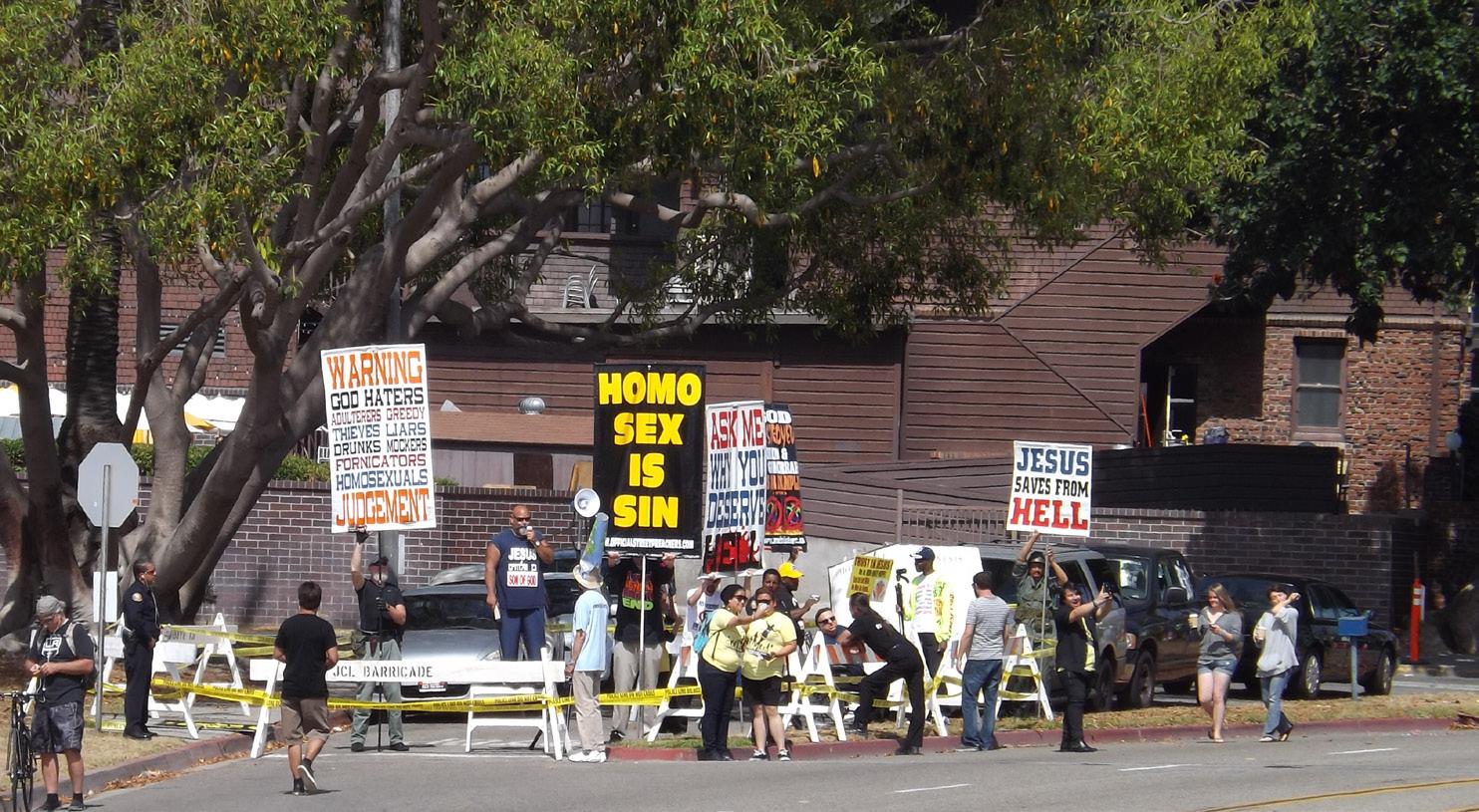
The story became national news and candlelight vigils sprang up all over the country. However, Shepard’s injuries were too severe. He died in the hospital a few days later.
As we approach the 25th anniversary of his death, it still crosses my mind, and I find myself wondering if the country is still homophobic, merely tolerant or equal, and whether or not I’m a good ally in it.
I used to think our country was headed in the right direction on LGBTQ+ issues. We saw new hate crime legislation get enacted, more LGBTQ+ representation in media and people were getting to be who they are.
Most of the movement seemed to be going in a positive direction. We even witnessed gay marriage go before the Supreme Court, they affirmed it, and many in the country rejoiced.
Things seem to be different now in 2023. We’re going in the opposite direction. Maybe it was the election of Donald Trump, or maybe it was something more systemic, but the LGBTQ+ community is under attack again.
I don’t know if the hate for the LGBTQ+ community ever went away. I think it was just redirected for a while, but the rhetoric is loud again.
Journalists debate the existence of people in the transgender community
Since his murder attracted national attention, it also attracted the Westboro Baptist Church. They came to spread their hate at Shepard’s funeral, and the criminal trials that followed.
One of Shepard’s friends took action for the murder trials.
When Westboro showed up, Shepard’s friends, including Romaine Patterson, donned white robes and large angel wings, surrounded the Westboro protesters and tried to drown them out.
Even though the people in the courtroom still heard the hate from Westboro protesters, the “guardian angels” mission was clear, to drown out hate.
I think that’s a big part of being an ally, listening to our LGBTQ+ peers and amplifying their stories to drown out the hate.
The rhetoric is getting louder. It’s time to drown them out again. While having wings is helpful, all we really need is our voices.
BY JAYLYN PRESLICKA Copy Assistant
Within the last couple of years, the use of the term “queerbaiting” has gained popularity outside of teenager-centered social media discourse, now entering the mainstream.
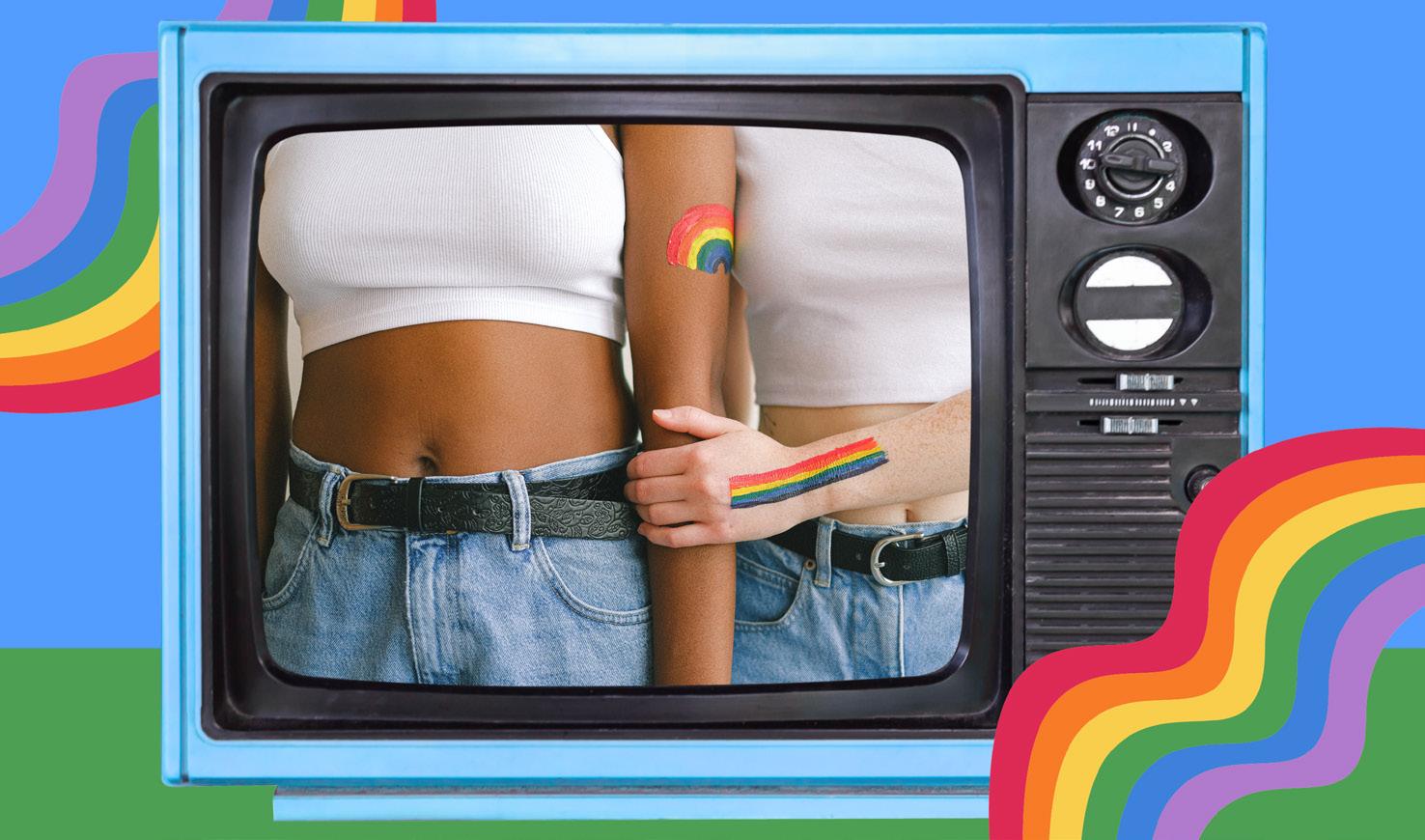
While the term has been around since the early 2010s, its recent appearance has led many to question the dynamics of relationships in both fictional media and reality.
“Queerbaiting” is a term used to describe instances where a show is accused of misrepresenting itself as having LGBTQ+ themes in order to appeal to LGBTQ+ audiences. It is often used to describe the relationship between two presumed heterosexual characters with homoerotic undertones.
Recently, the term has been overused, causing it to lose its original meaning, calling every playful example of self-exploration as exploitative.
Unlike many other controversial queer terms though, “queerbaiting” has no validity within the community.
In their video essay on the subject, Sarah Z argues that the term “queerbaiting” does more harm than good at this point. “I’m more than willing to sacrifice the few cases where the term is useful in order to get rid of the way this term has become a cudgel against so many members of the community.”
Expressing a character’s gender or sexuality in a way that deviates from someone’s romantic history does not mean a show is exploiting queer culture. It also implies that people cannot explore themselves.
As with most aspects of life, self-exploration doesn’t mean getting who you are as a person right the first time. You wouldn’t want the identity you set for yourself at 14 to define you for the rest of your life.
“Queerbaiting” insinuates that any expression that deviates from the social norm is automatically assumed as queer, which is not the case. Two men showing affection when they identify as heterosexual does not insinuate that they have harbored feelings for each other, it is simply a moment of affection.
Within the world of fictional media, there is an argument to be discussed in terms of LGBTQ+ representation. To this day, there isn’t much for LGBTQ+ people in the mainstream and what is
displayed are often characters of stereotypes.
Due to this, many queer individuals grasp onto what little homoerotic subtext is available to analyze, just to find out that the writers of the show confirmed the character to be straight.
Unfortunately, “queerbaiting” is no longer used just to critically analyze fictional media. It has leaked into the lives of public figures as well, sometimes causing risks to their career in the process.
One famous example of this could be when singer Billie Eilish was put under fire for queerbaiting in a music video. In an Instagram caption that she posted promoting the video, she stated, “I love girls,” which left many questioning Eilish’s sexuality.
In an interview with Elle magazine,
the singer replied to the controversy, stating, “Or my sexuality! Like, oh yeah, that’s everyone else’s business, right? No. Where’s that energy with men?”
“There are definitely things more worrying than queerbaiting, such as the attempts to ban drag and the onslaught on trans rights, but it still is problematic,” said Bubba Echols, a fifth-year studio art major at Long Beach State. “Queerbaiting can also cause people to be invasive of people’s sexuality or gender identity, like what happened to Kit Connor this past year.”
The LGBTQ+ community has a right to be skeptical of seemingly straight, cisgender presenting individuals involving themselves within queer culture, but the over-policing of expression does more harm than good.
OPINION 12 Monday, October 9, 2023 daily49er.com | @daily49er
STEVEN MATTHEWS / Daily Forty-Niner
Not everyone has a queer eye: How “queerbaiting” has become over-generalized
Photo illustration by EL NICKLIN
Queerbaiting has become a popular term in discussions on social media. However, it shouldn’t affect real life.
It's okay to ask for help!
As a result, was created as one-stop-shop, comprehensive guide of on-and-o campus resources to ensure that students can access while navigating their changing lives, demands, and challenges as college students. Beach Wellness | California State University Long Beach (csulb.edu).
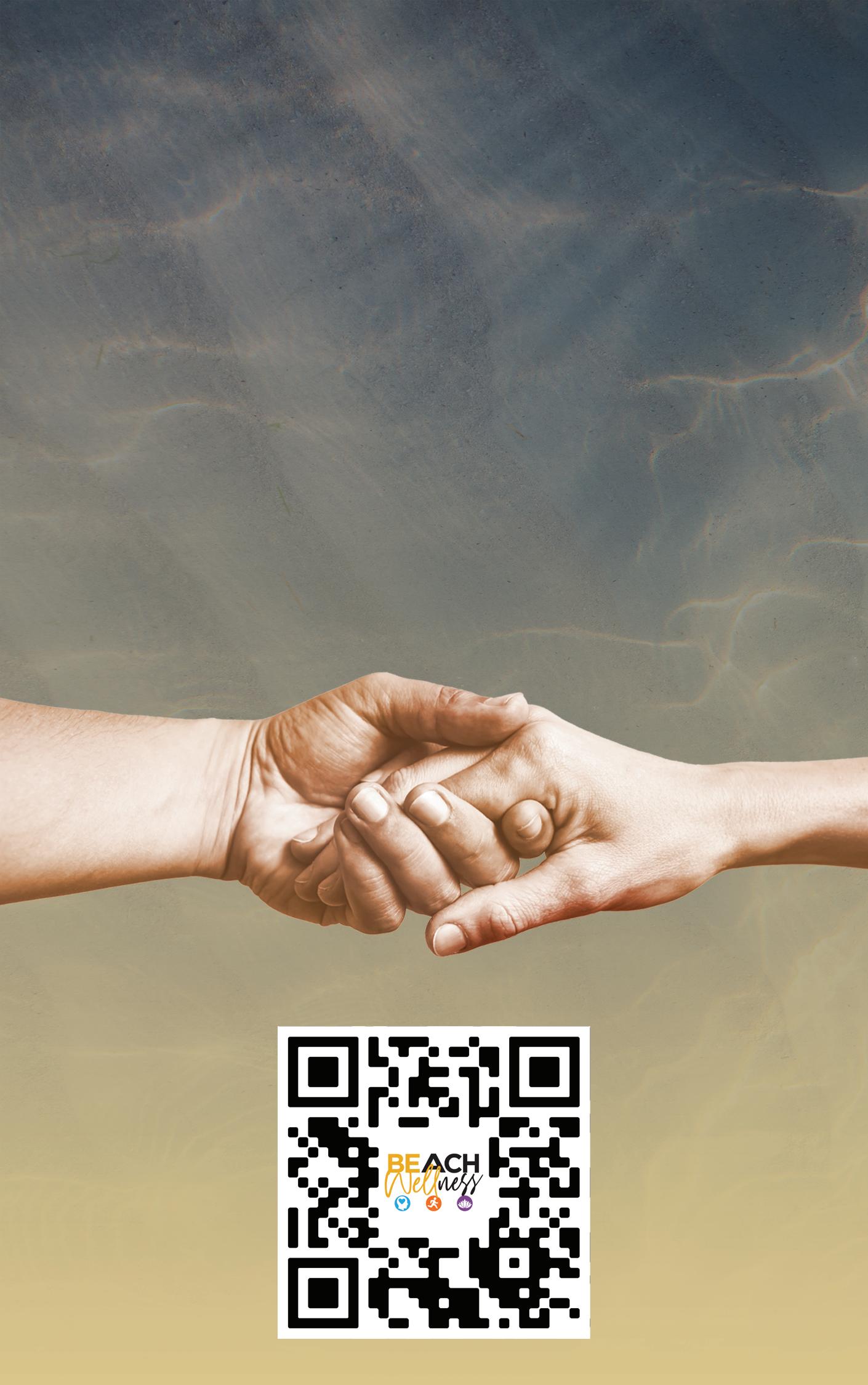
Finding help is easier than ever, just We invite you to explore our website to access the tools and resources you may need to nurture your body and mind. Your journey to a healthier, happier you begins right here
LBSU women’s basketball head coach opens up about her identity
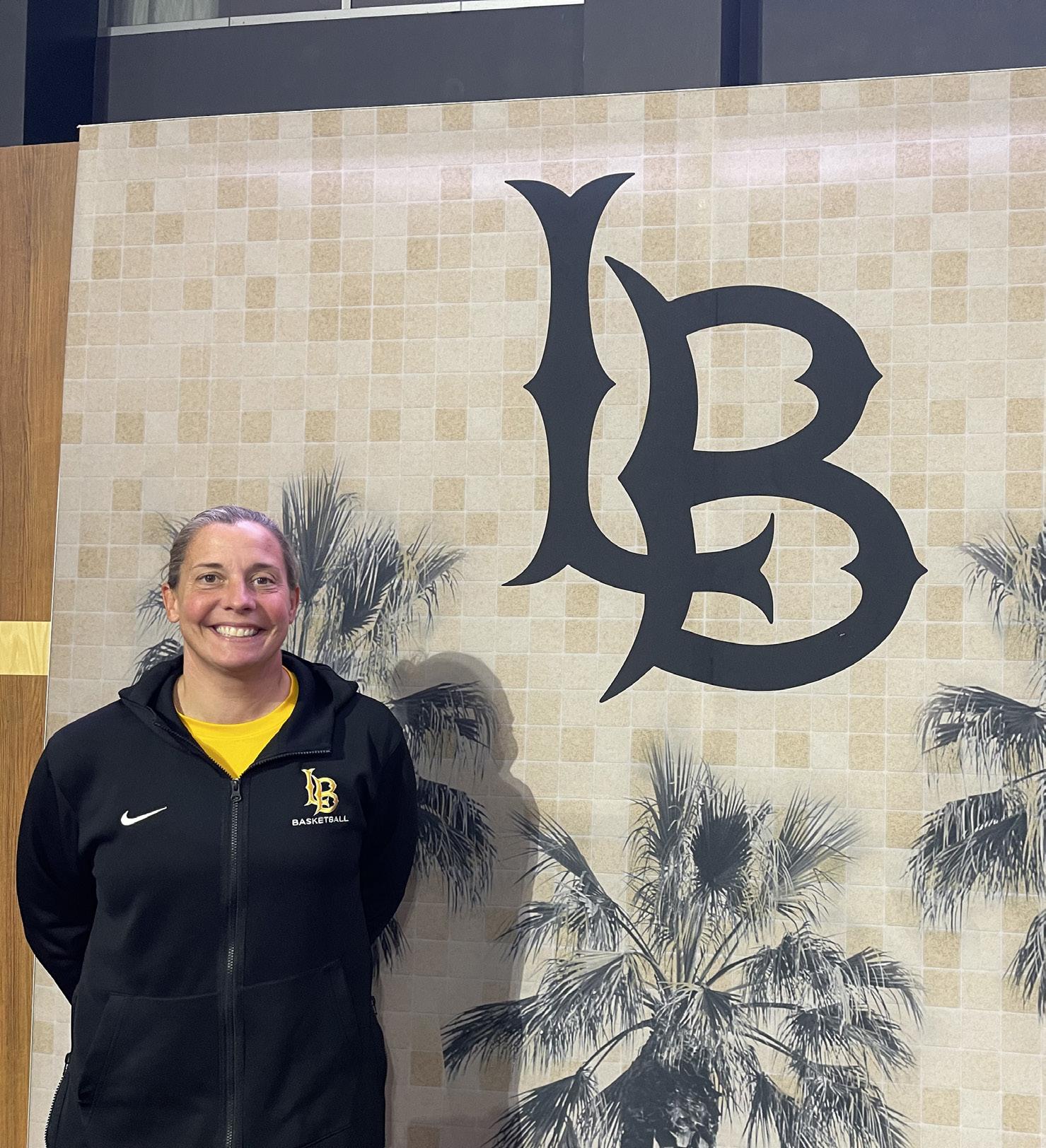 BY ALYSSA DE LA CRUZ Sports Assistant
BY ALYSSA DE LA CRUZ Sports Assistant
From setting records as a player to excelling as a coach, women’s basketball head coach Amy Wright has continued to push the boundaries and stand out throughout her entire career.
Former University of Arkansas basketball star and Indiana native Amy Wright has joined the LBSU athletics staff. Earlier this year in April, LBSU announced that Wright was hired for the position as the head coach for the women’s basketball team.
Wright grew up in a small rural city in Indiana with a couple of corn fields, farming areas and long empty open roads.
While playing at Arkansas during 1999-2002, she acquired records for most games played and career assists.
However, coaching was never on Wright’s mind. “I didn’t want to coach; I fought it for a long time. I thought I was going to design shoes for Nike,” Wright said.
Wright’s philosophy for coaching basketball is fun, fast and furious, while also encouraging being a good person and doing the right thing on and off the court.
“Amy has an up-tempo, fast and exciting style of coaching, brings energy and confidence to the team…as strong off the court as women as we are on the court,” said Junior Guard Savannah Tucker.
Wright said that she loves it in Long
Beach and felt a great sense of community after she got a chance to mix with the women’s volleyball team and the golf team.
Drawing from her own experiences, Wright encourages everyone to embrace their identities, be it in the LGBTQ+ community or any other aspect of their lives, without fear or shame.
“All of us identify ourselves as ourselves. I identify myself as Amy first,” said Wright as she explained that everyone should be comfortable with themselves.
In a world where LGBTQ+ individuals in sports often face challenges and stereotypes, she decided to live authentically and openly.
Coming out with her sexuality was a pivotal moment in Wright’s life. “I was never really owned up to it until I was in about my third or fourth year at Texas A&M,” said Wright.
Wright opened up about her identity when she was in her 30s. Being able to express herself was a challenge, but an experience she’ll never forget.
Wright’s partner of 19 years is her support system; she said that her significant other is someone she loves dearly and respects.
“Amy is intentional and purposeful…she helps me grow as a person and player by consistently pushing me out of my comfort zone while being a supportive figure in my life,” said Sophomore forward Kennan Ka.
As we celebrate coach Wright’s hiring at The Beach, her story reminds us of the importance of diversity, inclusion and authenticity in women’s basketball and sports as a whole.
13 Monday, October 9, 2023 daily49er.com | @daily49er SPORTS
ALYSSA DE LA CRUZ / Daily Forty-Niner Long Beach State women’s basketball head coach, Amy Wright, poses in the Sandbar inside the Walter Pyramid on Sept. 28, 2023.
PAID ADVERTISEMENT
All of us identify ourselves as ourselves. I identify myself as Amy first. Amy Wright LBSU women’s basketball head coach
”
Former Arkansas star Amy Wright joins women’s basketball as a head coach and details her experiences as an athlete and coach in the LGBTQ+ community.
DEI committee members reaffirm commitment to inclusion and diversity in sports
BY KARLA VALDEZ Staff Writer
The importance of diversity and inclusion in athletics is constantly evolving and Long Beach State has made efforts to promote social cohesion and equitable opportunity for all.
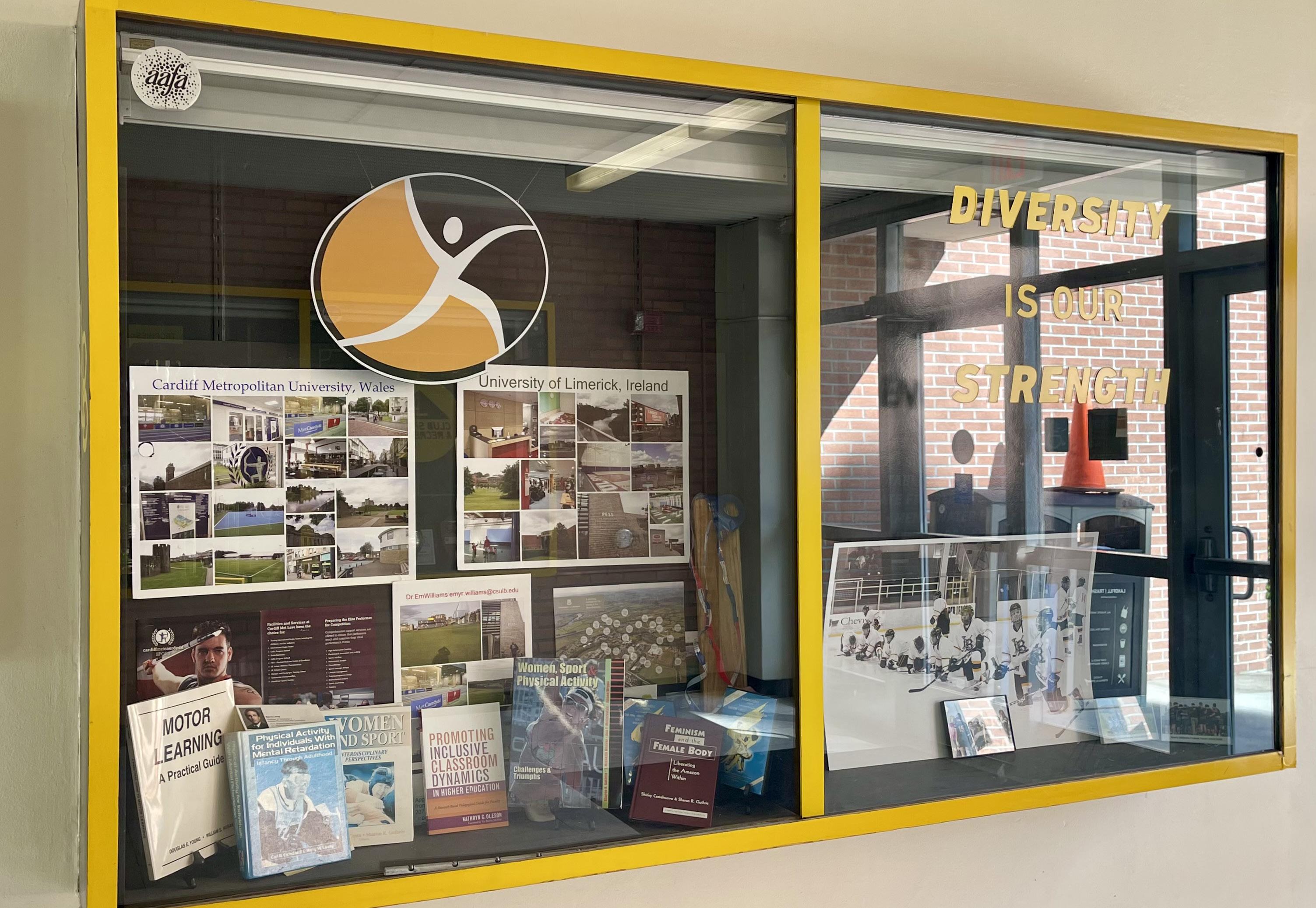
Sports not only promote fairness, but also widen the talent pool by allowing competitors of various racial backgrounds, genders, athletic abilities and socioeconomic statuses, therefore fostering brilliance and creativity.
Many leagues and associations are implementing that change among their players, like the MLS, NFL, NBA and WNBA. According to Forbes, in order to facilitate league-wide answers to issues of player concern, the NBA has developed social justice, civic engagement and inclusivity initiatives.
The Diversity, Equity and Inclusion (DEI) Committee at Cal State Long Beach believes in creating procedures that are inclusive, diverse and have an impact on department personnel. They intend to keep holding motivational departmental training sessions to promote empathy and appreciation for the uniqueness of others.
Long Beach State’s newest Associate Director of Athletics, Bobby Smitheran, is working to diversify sports. As an institution, LBSU welcomes athletes who come from a variety of backgrounds.
“Many of them are first generation, coming from a low socio-economic background, coming from an educationally disadvantaged background and also how they identify as a person,” Smitheran said.
In his capacity as director, he has struggled to ensure that he has a diverse pool of applicants. He wants to guarantee that during the hiring process, everyone will have a chance at a good opportunity, regardless of the conditions.
As a result, student-athletes won’t believe that the organization’s character
will limit their ability.
“There are some differences that are not visible to the eye, so being open-minded and creating an environment where people can express who they are is really creditable,” Smitheran said.
Mike Campbell is entering his tenth year as the head Beach Volleyball Coach. He has been involved in many areas of campus, not only the athletic side with three years total serving in the committee.
“The most important thing is every student-athlete has a special story and we want to make sure that we are focused on that,” Campbell said, “When the athlete’s identities get tangled up and just all they see themselves are as athletes, is when things can get really unhealthy.”
“We are so special to have the diversity in our university and we need to em-

brace that,” he said.
Athletics mental health case manager, Caitlin Broadwell, provides assistance with trauma, identity development and concerns relating to sports and careers.
“Some of these athletes are a little bit underdeveloped in the areas of having the right tools, so Caitlin has been a great resource for us,” Campbell said.
Roger Kirk, associate athletic director for media and broadcast, says the DEI Committee works with the student athlete advisory committee to support all groups so that their opinions are heard and people feel valued.
“Making sure we have varied voices within the committee itself has been really important and making sure that we are seeing the values of every constituency that we have and work in a mindful manner,” Kirk said.
Recruitment amongst coaches, staff and student athletics is decided by being mindful through the hiring process. Being very purposeful in how they look at a group of resumes ensures that they receive a diverse pool of candidates.
Helping student-athletes find resources is very important as they dedicate so much of their time to their sport. Through coaching education, working with the student athlete advisory committee and with the National Collegiate Athletic Association (NCAA), they commit to the long-term success and care of college athletes.
“Athletics can really be a driver of unity in bringing people together, so it is very important that our teams reflect the diversity of our student population,” Smitheran said.
SPORTS 14 Monday, October 9, 2023 daily49er.com | @daily49er
KARLA VALDEZ / Daily Forty-Niner
The Kinesiology building on campus displays historical moments, emphasizing the phrase “diversity is our strength,” in order to promote inclusivity in sports.
PAID ADVERTISEMENT
The most important thing is every student-athlete has a special story and we want to make sure that we are focused on that.
Mike Campbell Beach volleyball head coach
”
National sports leagues have a Pride issue
BY MATTHEW GOMEZ Sports Assistant
While Pride month isn’t a month I can explicitly claim, I do consider myself to be an ally. In saying that, I believe that the sports community can do far better than what’s being done now.
Sports have long been considered masculine in nature and because of that, there has almost always been an added layer of toxicity in regard to gender and sexual orientation. To say there hasn’t been progress would be wrong, but to say more can’t be done would be a damaging lie.
As progressive ideas have become more widely accepted, the stigmas attached to sexuality have begun to slowly fall. But in an industry as male-dominated as sports, this progress is being outdone by the setbacks that occur with each passing year.
For a long time, it felt like athletes from the Big 4 North American sports (NBA, NFL, MLB and NHL) would only come out after retirement, but that has since changed because of the likes of Jason Collins, Michael Sam, David Denson and most recently Carl Nassib. While none of the names jump out as stars, their off-the-field impact is bigger than anything in sports.
Across these leagues we do now see some celebration of Pride month, but to what extent are the actions they’ve taken actually making an impact?
We’ve seen and heard in the past (Blackout Tuesday) how something as little as a profile picture change really matters, and when players within the
league can opt out of the celebrations and festivities, what message does that send forward?
The MLB had the highest participation by any of the major sports leagues, with 17/30 teams changing their logo to the Pride rainbow in 2023.
This, alongside other scheduled Pride events, was hit with heavy pushback, most notably in the case of the Los Angeles Dodgers, who pulled a Pride event because of critics from multiple Christian and Catholic groups. They eventually came back with their tails between their legs and hosted an event anyway.
It was a spineless decision from the organization, showing that their support is only considered worthwhile in terms of the metrics it received.
Hearing players like Clayton Kershaw denounce the events’ guests, the Sisters of Perpetual Indulgence, because of his faith, showed why continued efforts to educate are necessary.
The Sisters of Perpetual Indulgence have received plenty of negative criticism, but if time and effort were put into researching the group it’d be apparent that their impact is positive. Starting in 1979 the group was one of the first charities to assist San Francisco’s gay community.
Since the turn of the century, they have raised over $1.5 million through donations and were also a part of the organization of the first AIDS Candlelight Vigil which is now an international event.
In the NHL, seven players opted out of Pride uniforms and another five in the MLB, citing their faith as the reason.
Because of the players in the NHL’s refusal to wear the jerseys, the league has since decided to halt the motion
altogether.
Something as simple as the Pride flag offends people and they claim its message shouldn’t be allowed in sports. Yet, another flag is flown proudly before, during and after each game in every professional stadium across the country.
Sports being an escape from reality is a phrase you’ll hear from many patrons of their respective games. While I agree with this sentiment, I also think it’s used by many in the instance of Pride events as a form of masking closeted homophobia and bigotry.
Allowing events that help empower a marginalized community should never be viewed in a negative light, but in this instance, it has been. Until leagues buy fully in, it feels more like they are just virtue signaling.
For a crowd that, as mentioned, believes sports should be an escape from reality far away from politics, gestures to the nation, military, police and other government services are inherently political and happen at every game.
What isn’t political is the support of human rights issues, end of story.
LGBTQ+ athletes see hard-won progress in sports
BY ALYSSA DE LA CRUZ Sports Assistant
As a sports enthusiast, witnessing the presence of 87 LGBTQ+ athletes on the grand stage of the Women’s World Cup is nothing short of a monumental achievement in the ongoing journey toward LGBTQ+ inclusion and acceptance in sports.
For decades, the world of professional sports has been a bastion of heteronormativity, where LGBTQ+ athletes often felt compelled to hide their true selves out of fear of discrimination.

But the Women’s World Cup, with its rainbow-colored embrace, shatters these old paradigms and redefines what it means to be an athlete in the modern era.
First, it sends a powerful message to LGBTQ+ youth around the globe. To see athletes at the pinnacle of their careers, proudly representing their countries while openly embracing their LGBTQ+ identities is an inspiration beyond words.
It tells these young individuals that
their dreams of excelling in sports need not be limited by their sexual orientation or gender identity. They can be both LGBTQ+ and a world-class athlete, breaking stereotypes along the way.
The presence of LGBTQ+ athletes on the biggest stage of international sports serves as a catalyst for change within sports institutions. It challenges the status quo and forces organizations to confront the biases that have persisted for far too long.
It demands that locker rooms become more inclusive and that policies are put in place to protect LGBTQ+ athletes from discrimination, both overt and subtle.
We must also acknowledge that the journey is far from over. Despite the progress made, LGBTQ+ athletes still face challenges, both personal and systemic. The burden of representation can be heavy, and the fear of backlash lingers.
But with each athlete who proudly steps onto the field, we move one step closer to a world where being LGBTQ+ in sports is entirely unremarkable – because, in the end, it should be. Sports should be about talent, dedication and
teamwork, not about who you love or how you identify.
The Women’s World Cup, with its diversity and inclusivity, serves as a beacon for a future where LGBTQ+ athletes are not only accepted but celebrated for who they are. It reminds us that sports should be a reflection of our society’s values, and our society is increasingly recognizing the importance of embracing diversity in all its forms.
The 87 LGBTQ+ athletes at the
Women’s World Cup are role models. They symbolize hope, courage and progress. They remind us that the power of sports goes beyond the final score; it has the potential to change hearts and minds, challenge norms and inspire a more inclusive world.
Their presence on the big stage is not just a win for LGBTQ+ athletes but for the entire world of sports and for society. It shows that love wins, both on and off the field.
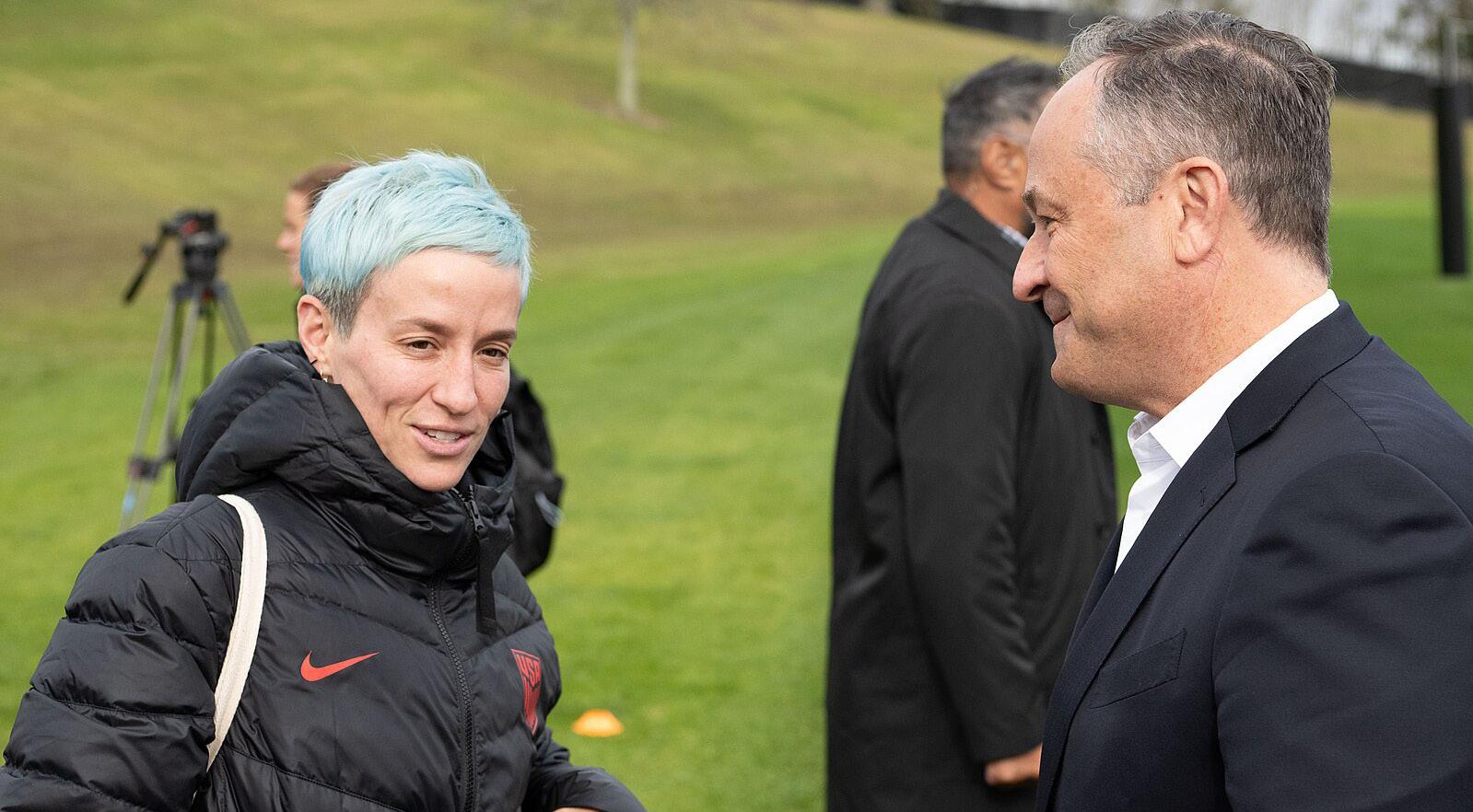
15 Monday, October 9, 2023 daily49er.com | @daily49er SPORTS COMMENTARY
TONY WEBSTER via Wikimedia Commons
Minnesota Wild mascot Nordy appears at the Twin Cities Pride Parade in 2018. The NHL has begun to veer back its Pride celebrations, restricting teams from wearing practice uniforms to raise awareness.
US Embassy New Zealand via Wikimedia Commons Second Gentleman Doug Emhoff (right) meets US Women’s National Team soccer player Megan Rapinoe in Auckland, New Zealand, on July 20, 2023.
Car people problems aren’t your problem anymore. Save on bus rides with the Go Beach! Pass from Long Beach Transit. Only for CSULB students.
Scan the code to learn more or visit ridelbt.com/csulb

DoesntMatterRodeBus
PAID ADVERTISEMENT




































 By ACSAH LEMMA News Assistant
By ACSAH LEMMA News Assistant

 BY ANTHONY ORRICO & MAYA-CLAIRE GLENN News Assistant &
Assistant
BY ANTHONY ORRICO & MAYA-CLAIRE GLENN News Assistant &
Assistant
















 BY ALYSSA DE LA CRUZ Sports Assistant
BY ALYSSA DE LA CRUZ Sports Assistant




